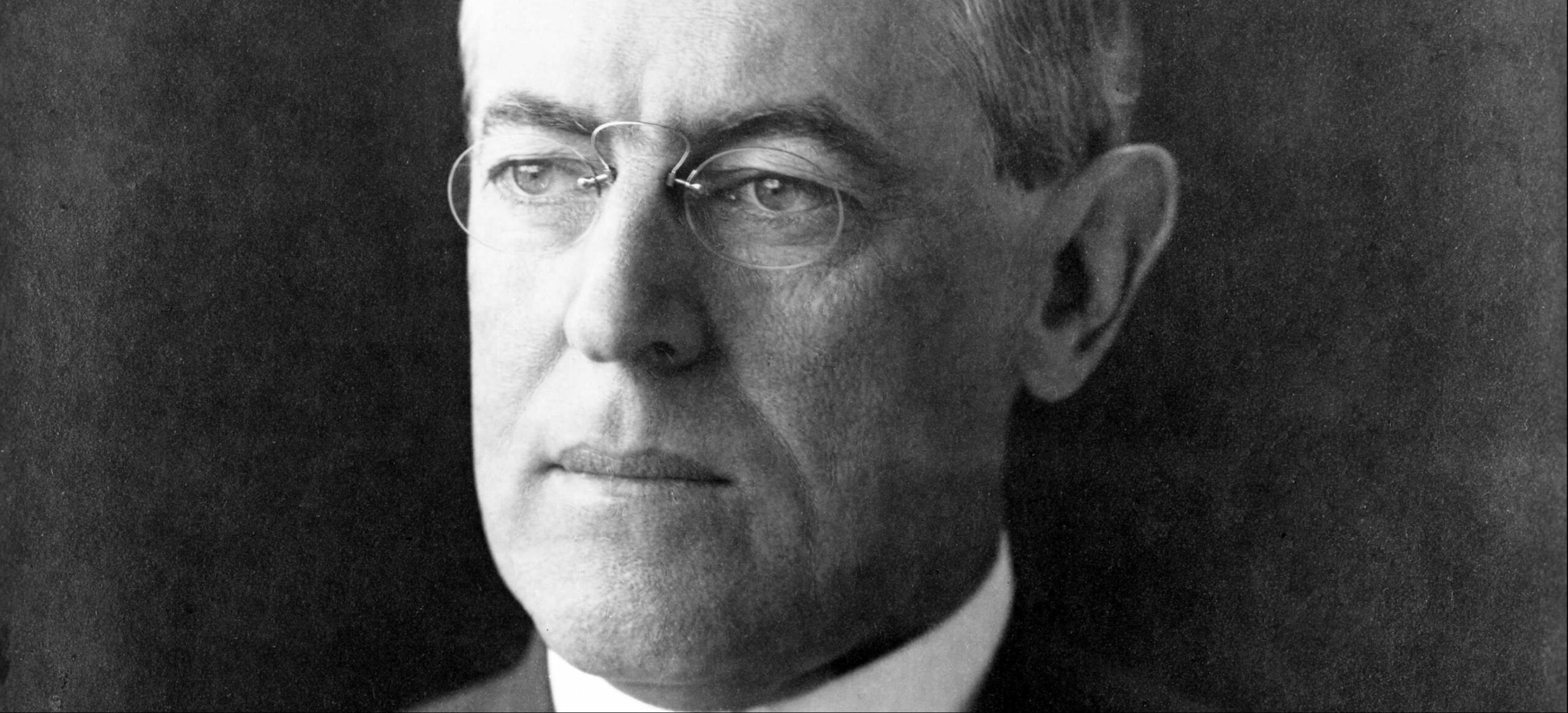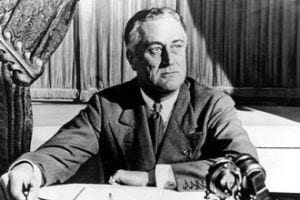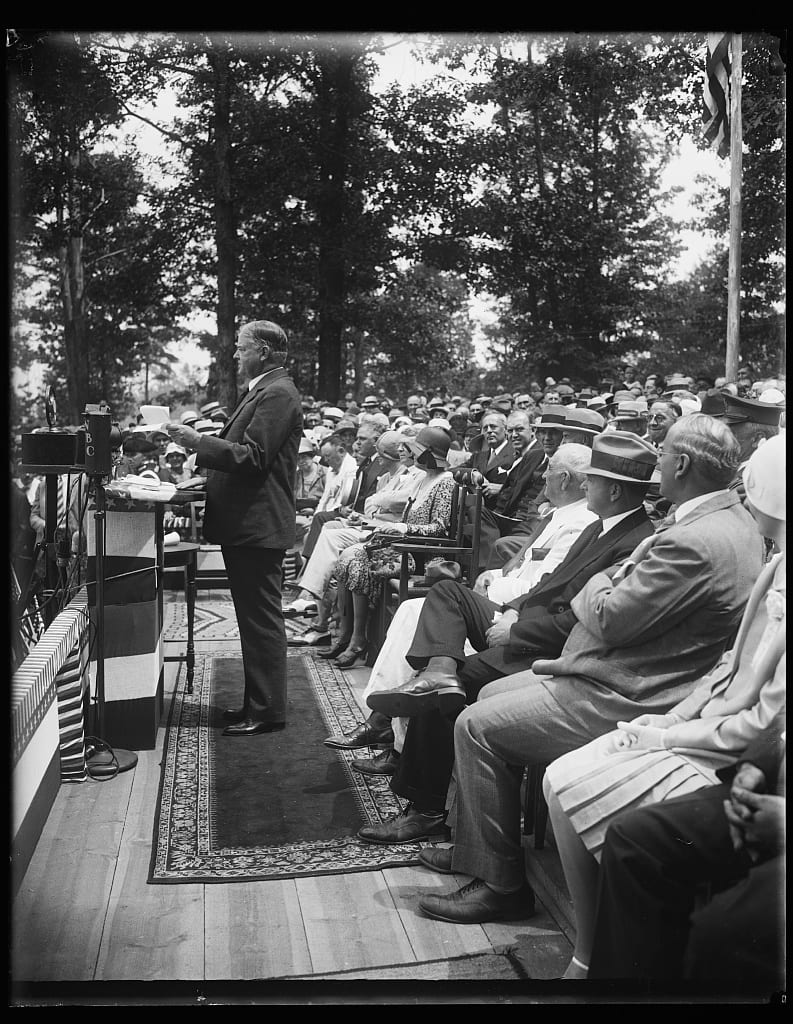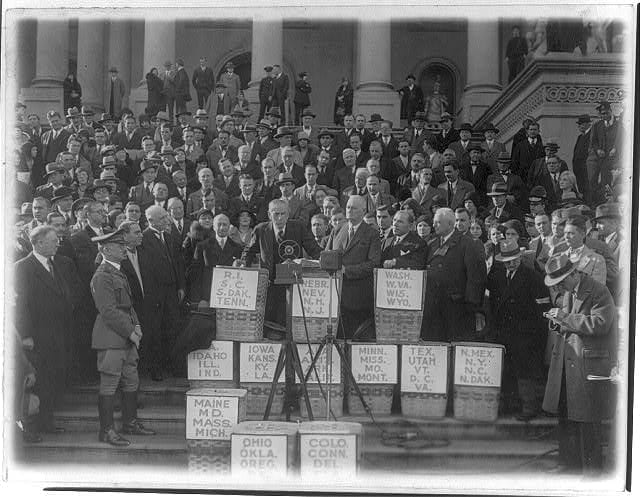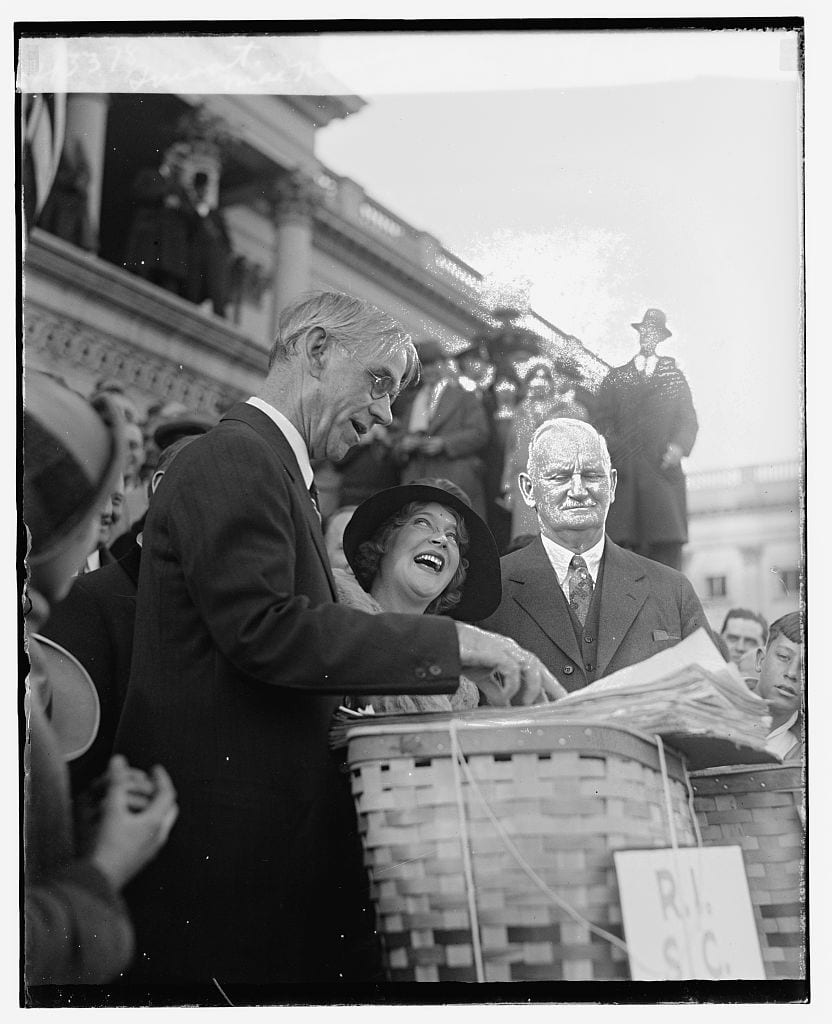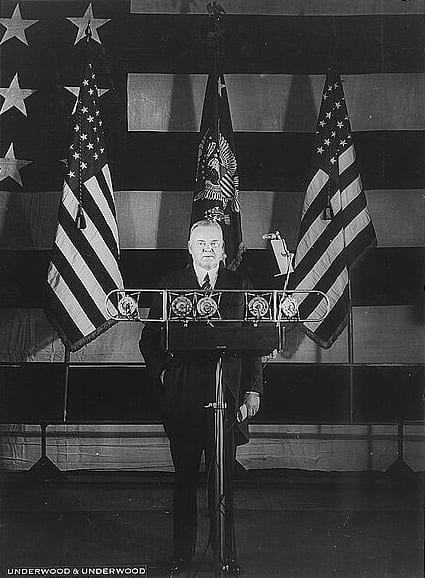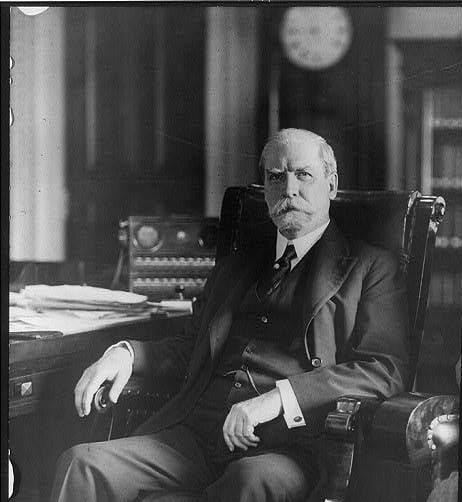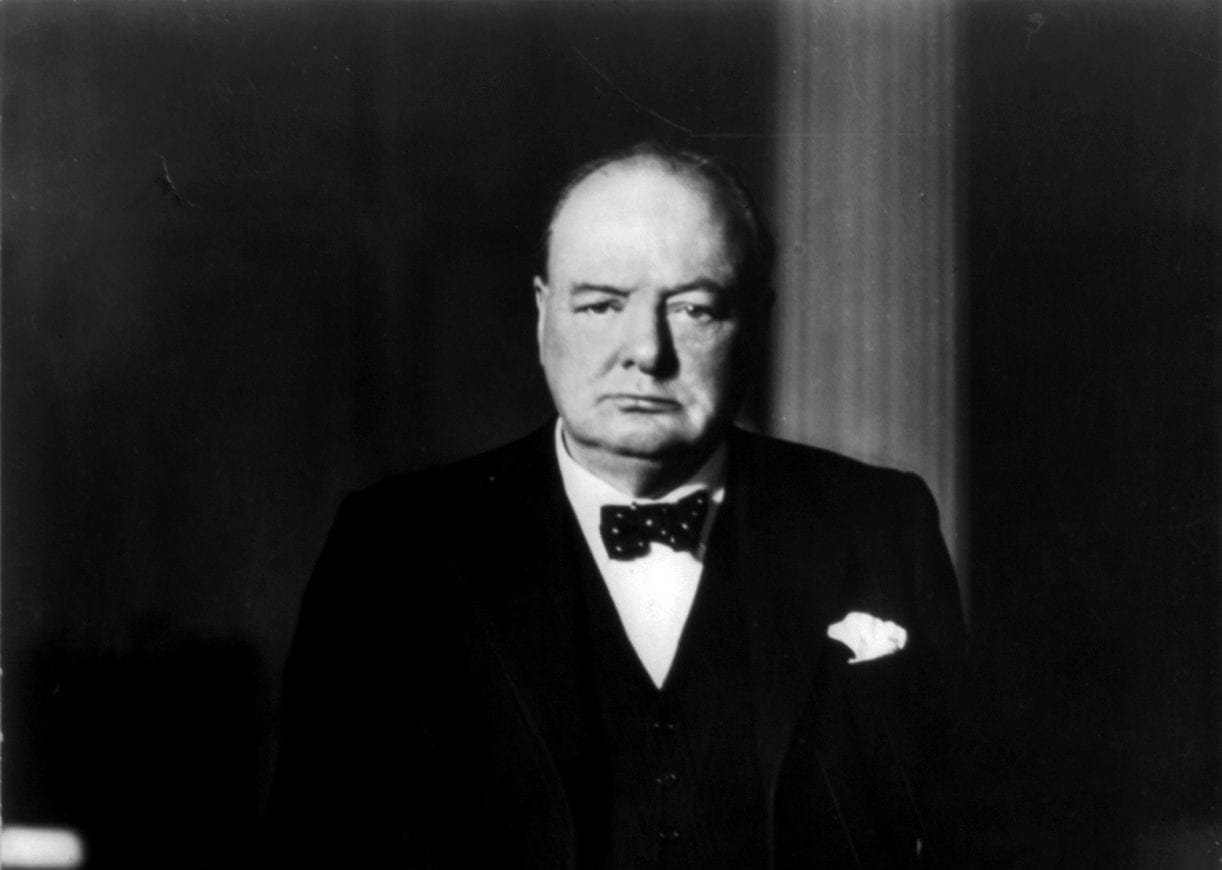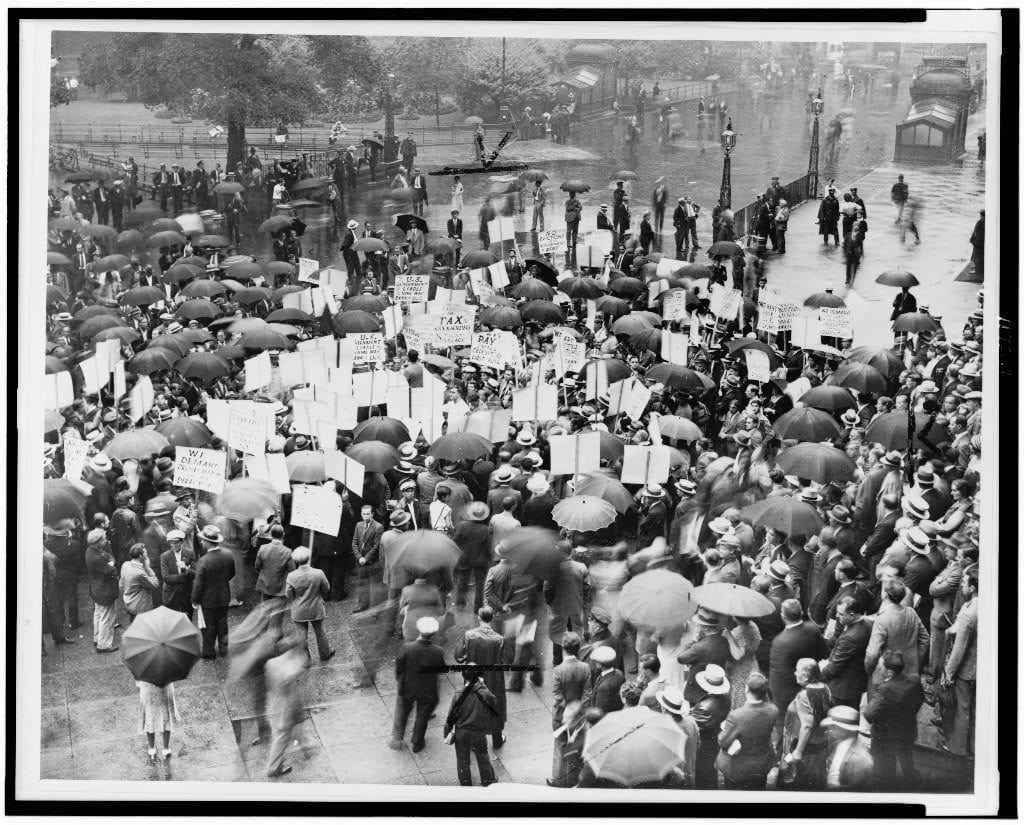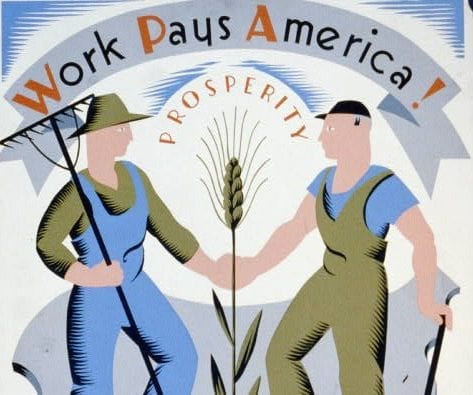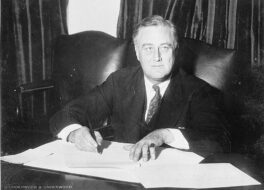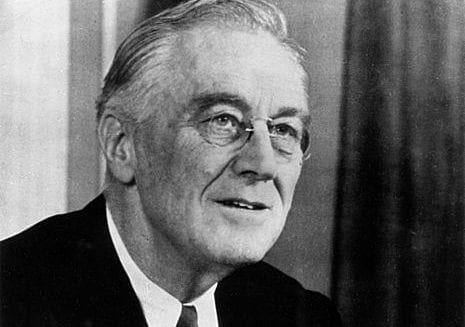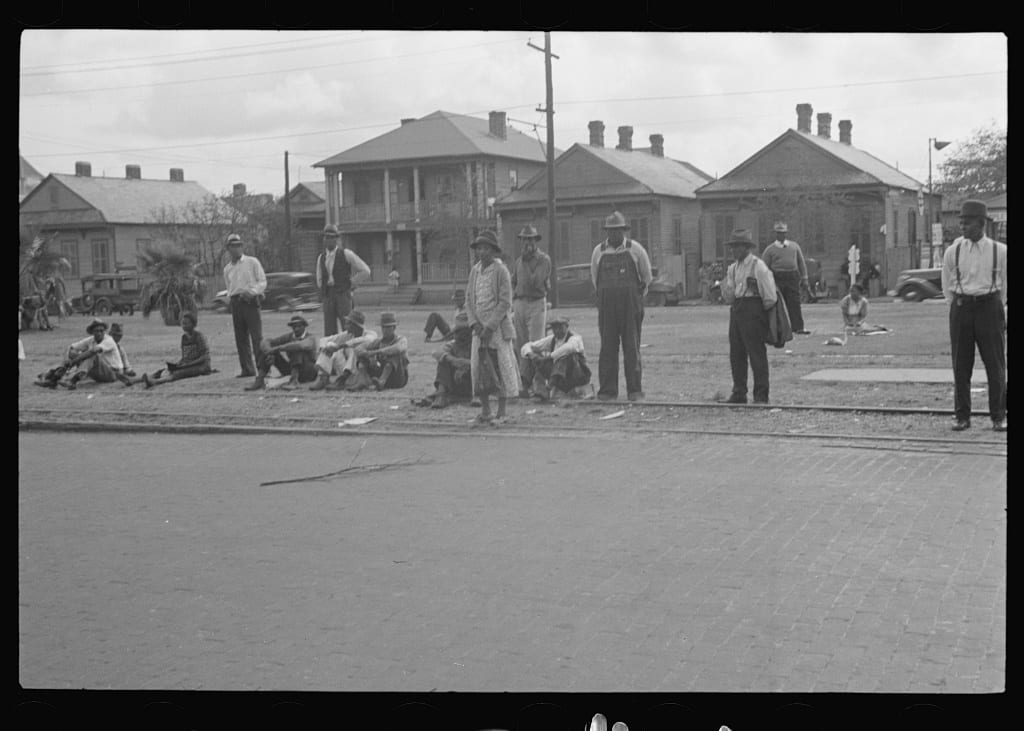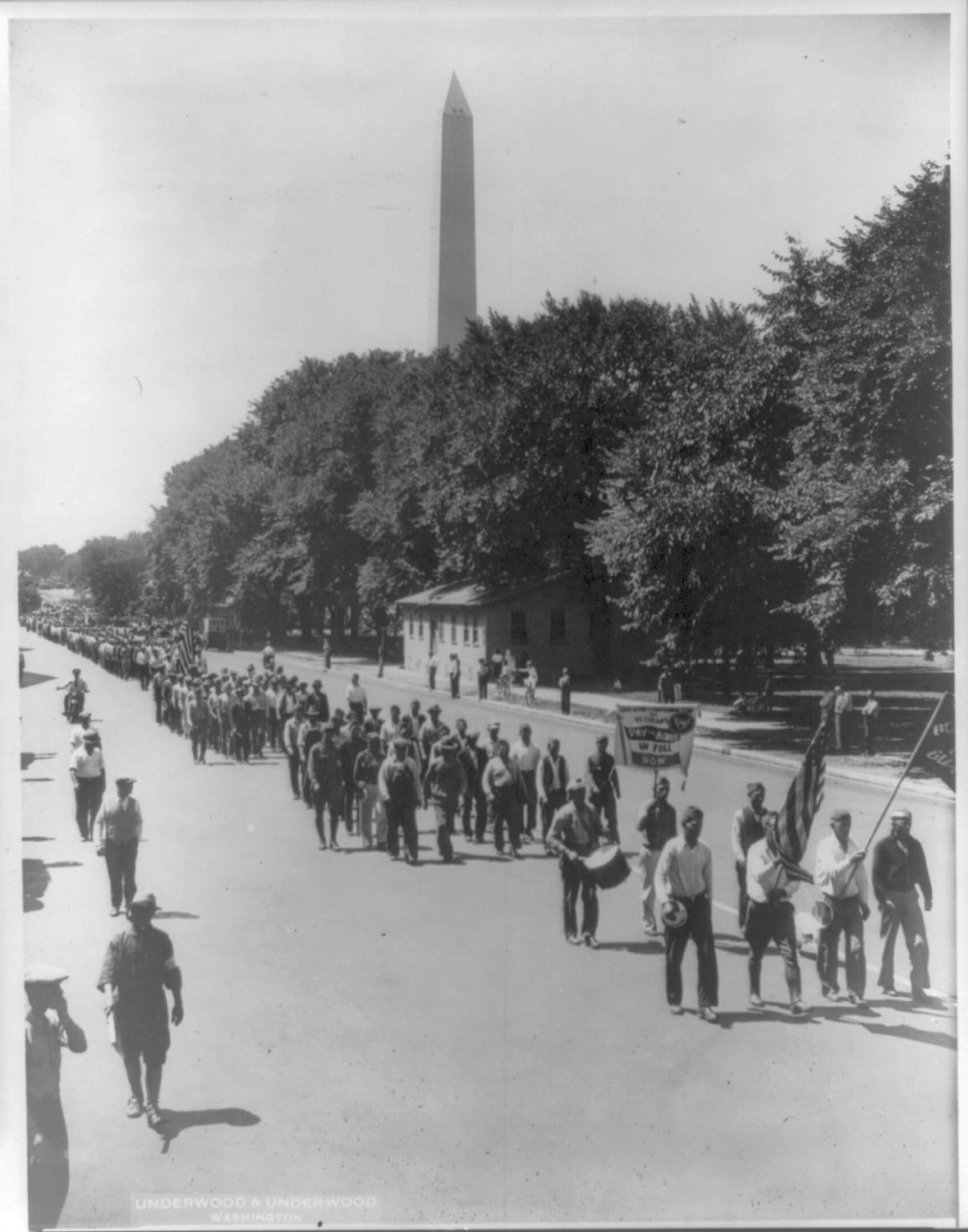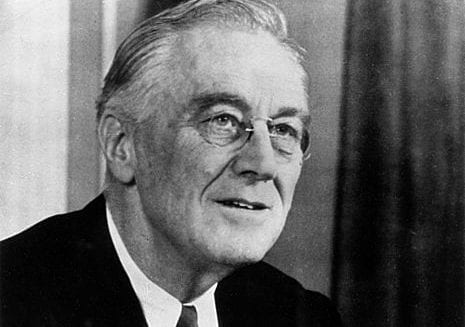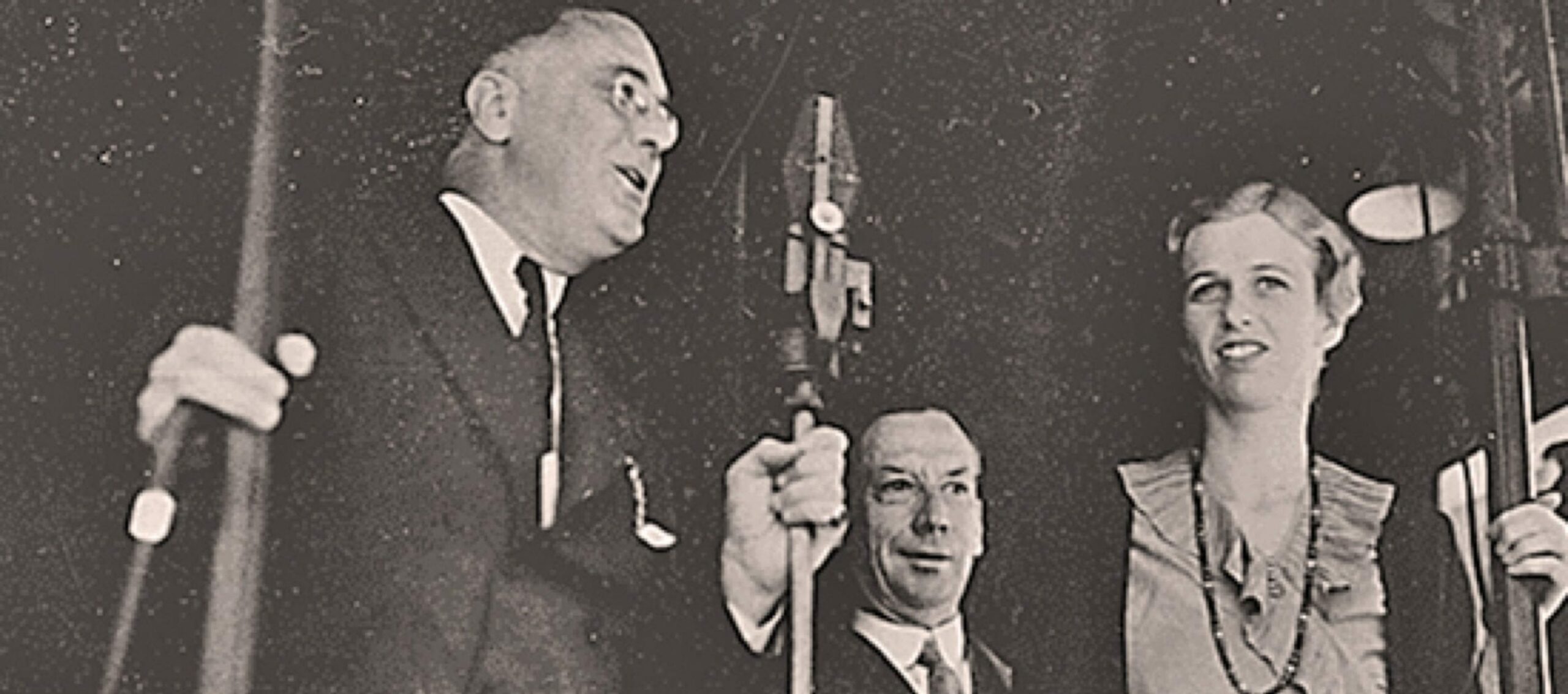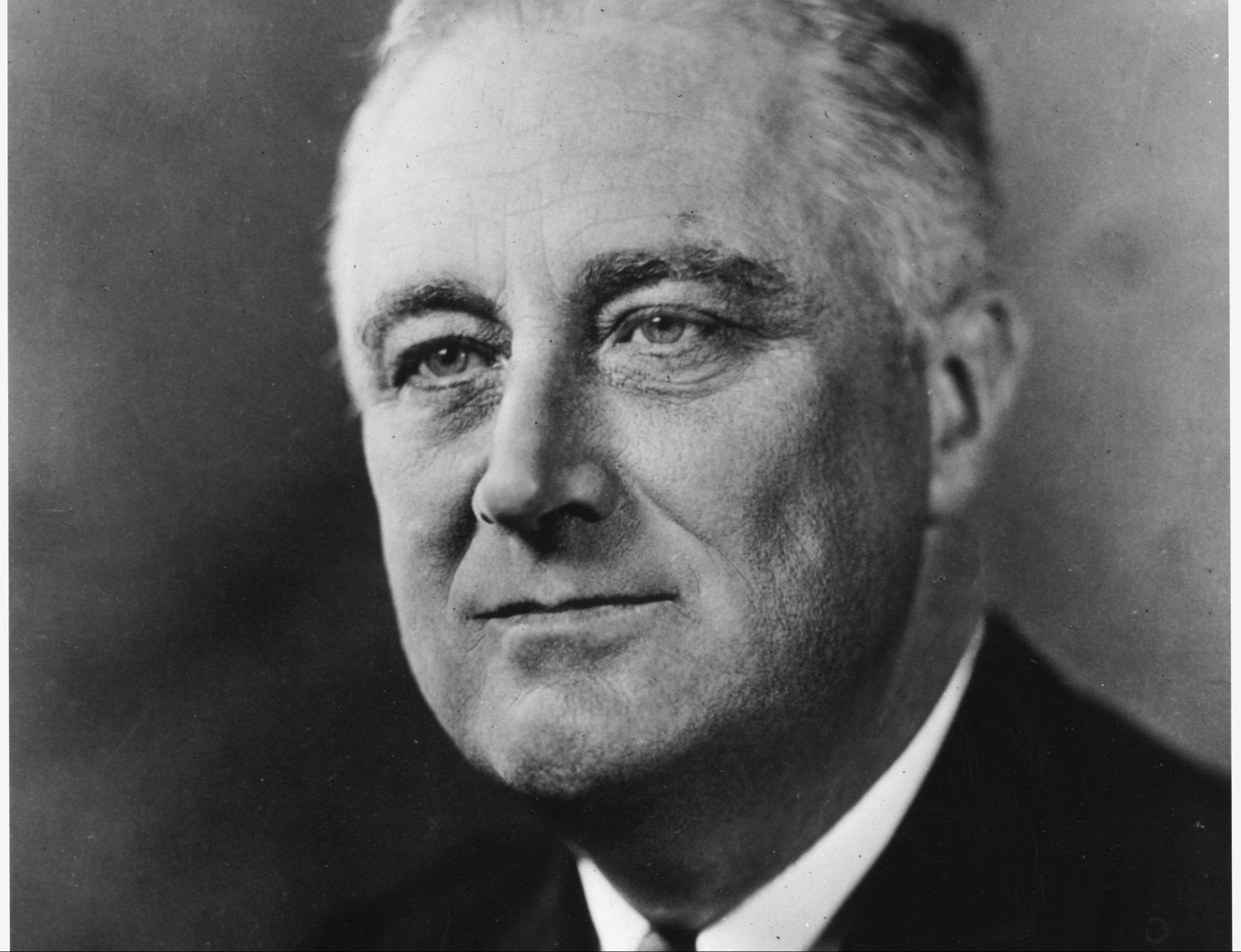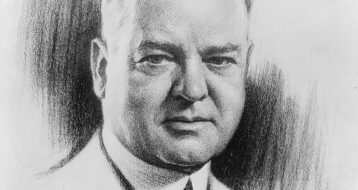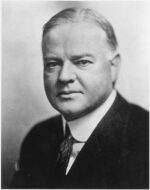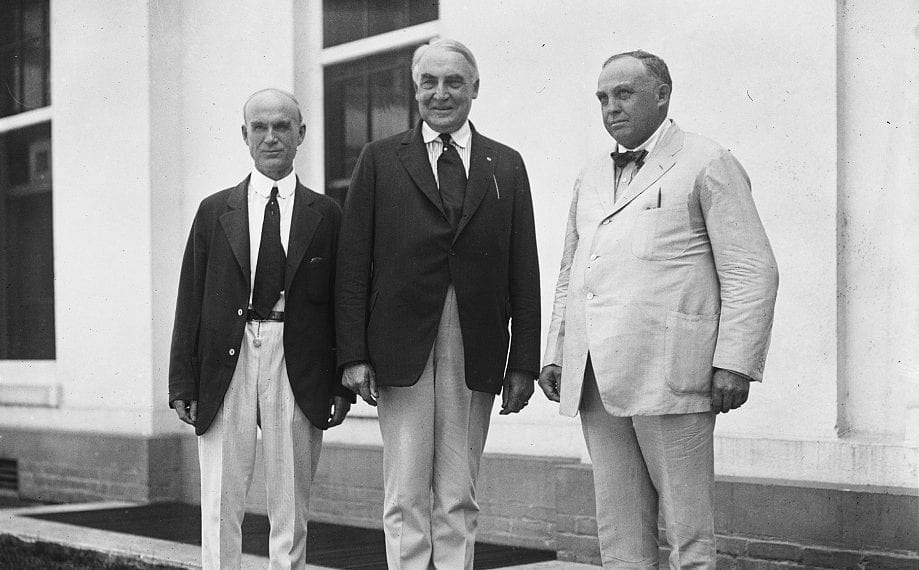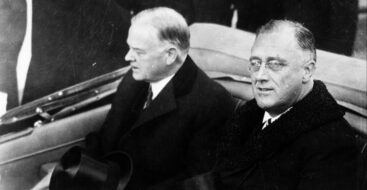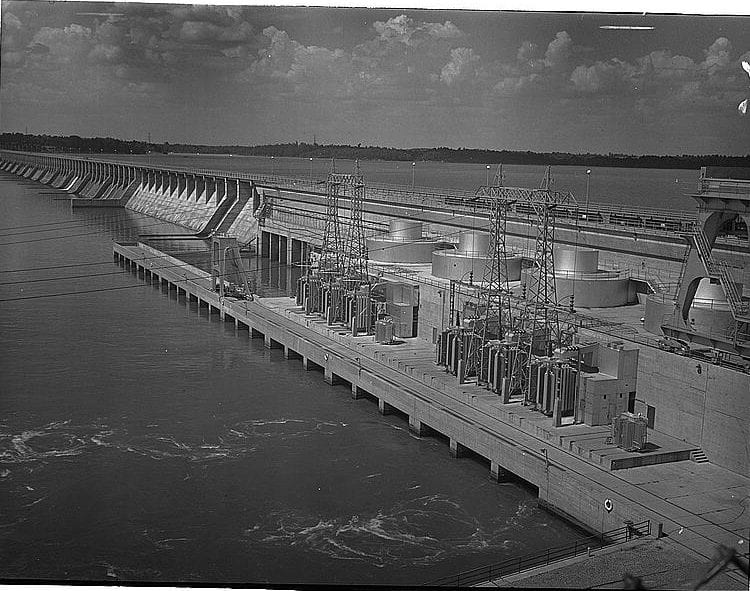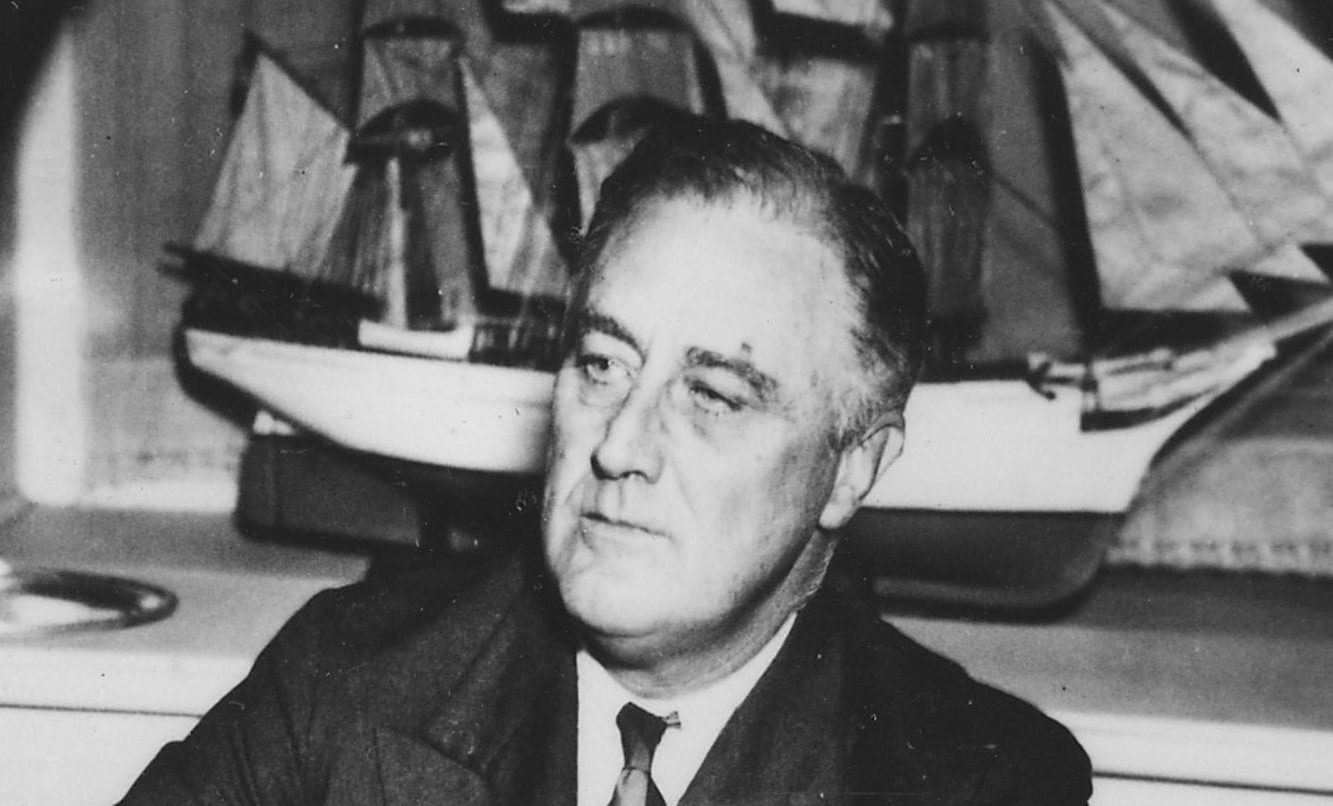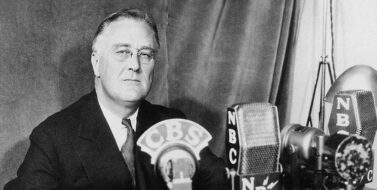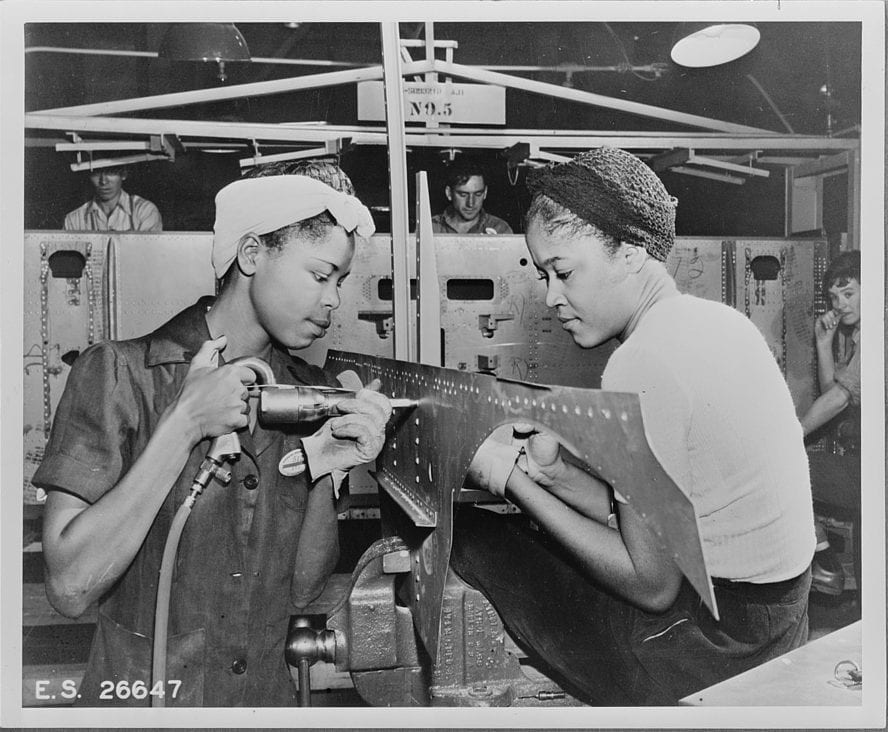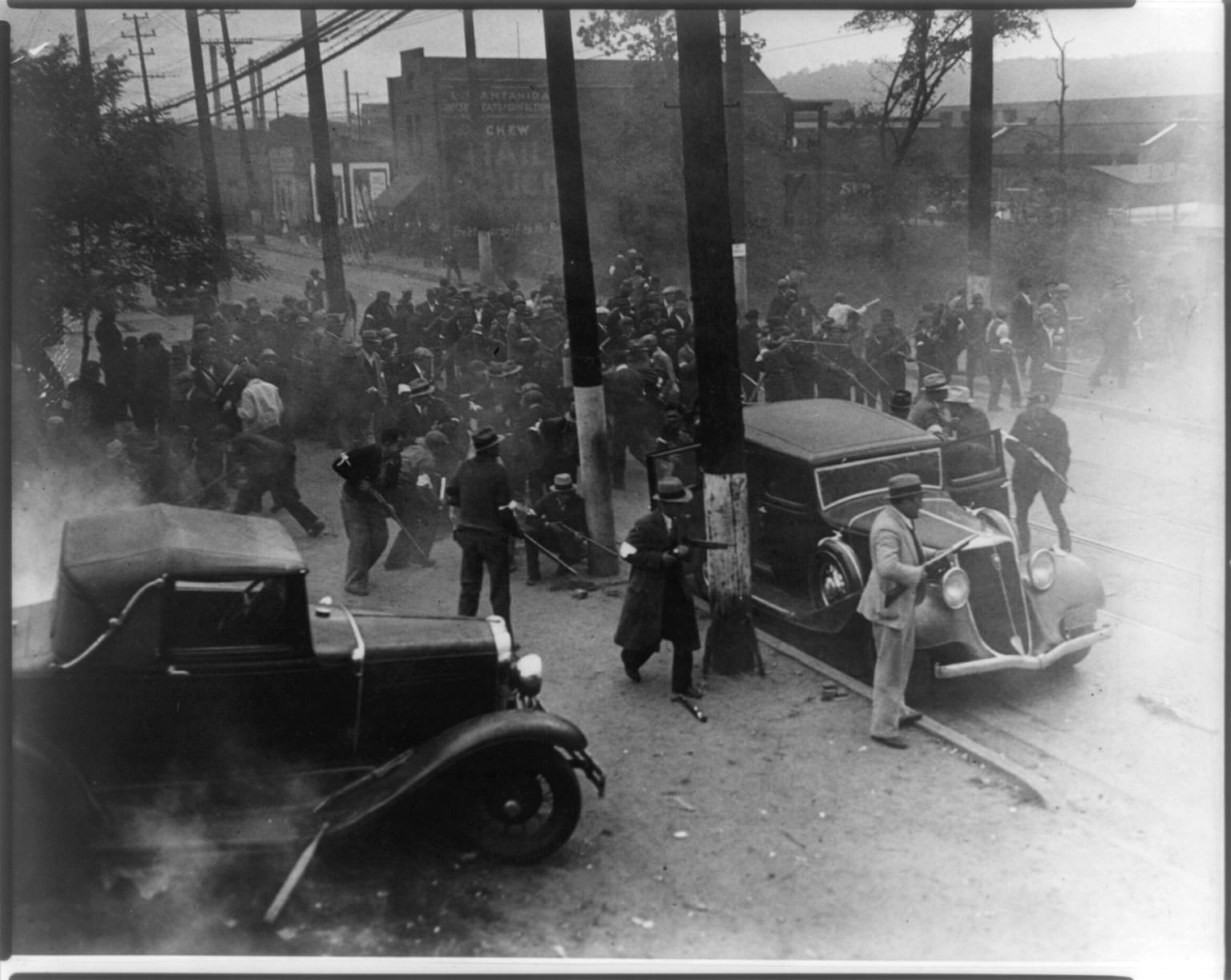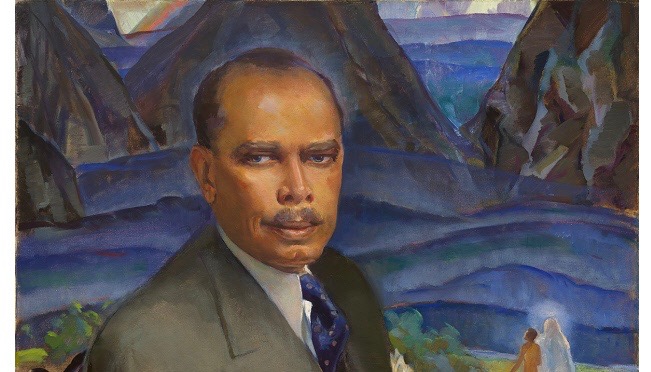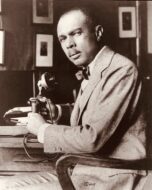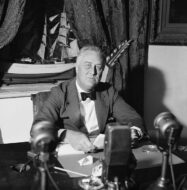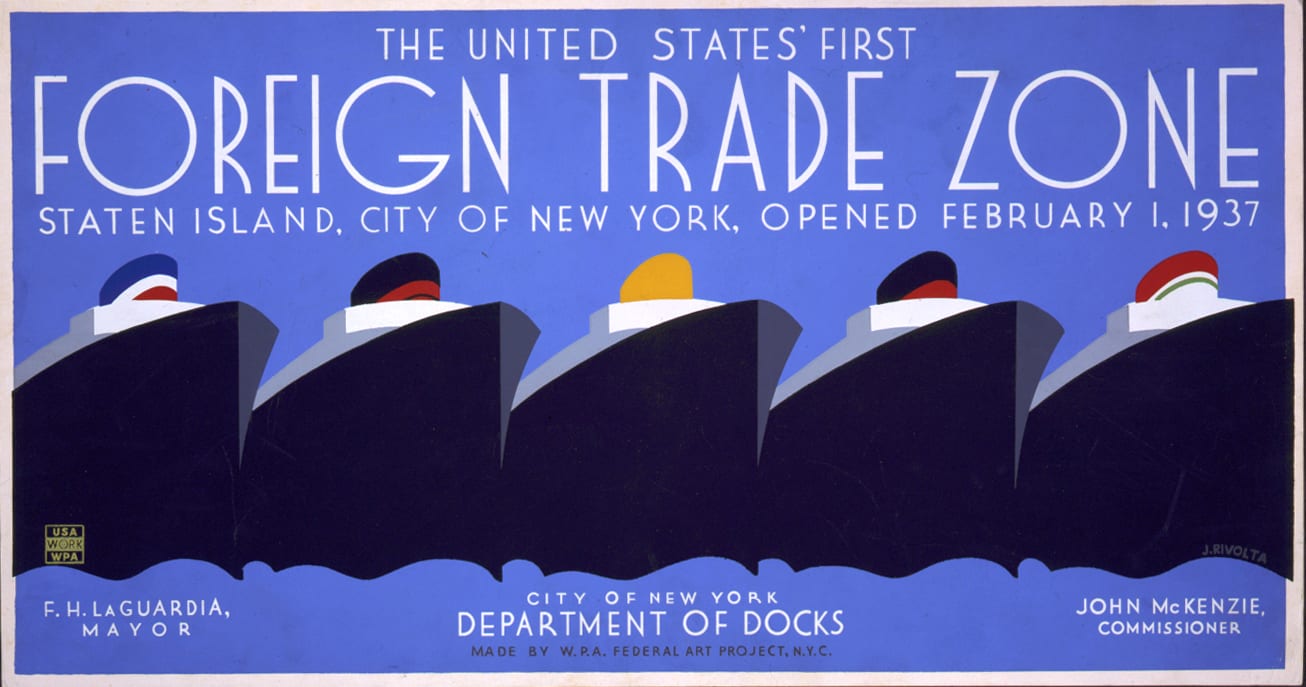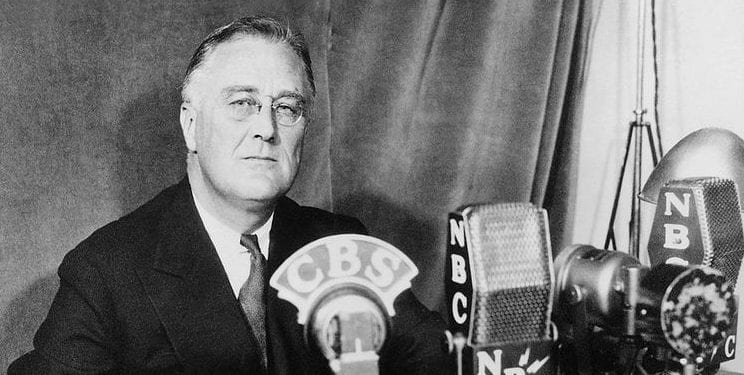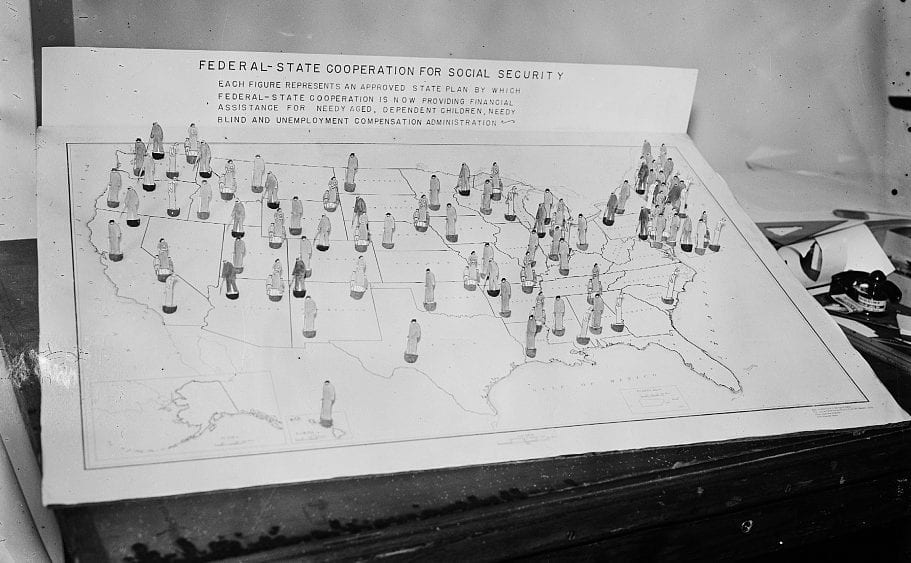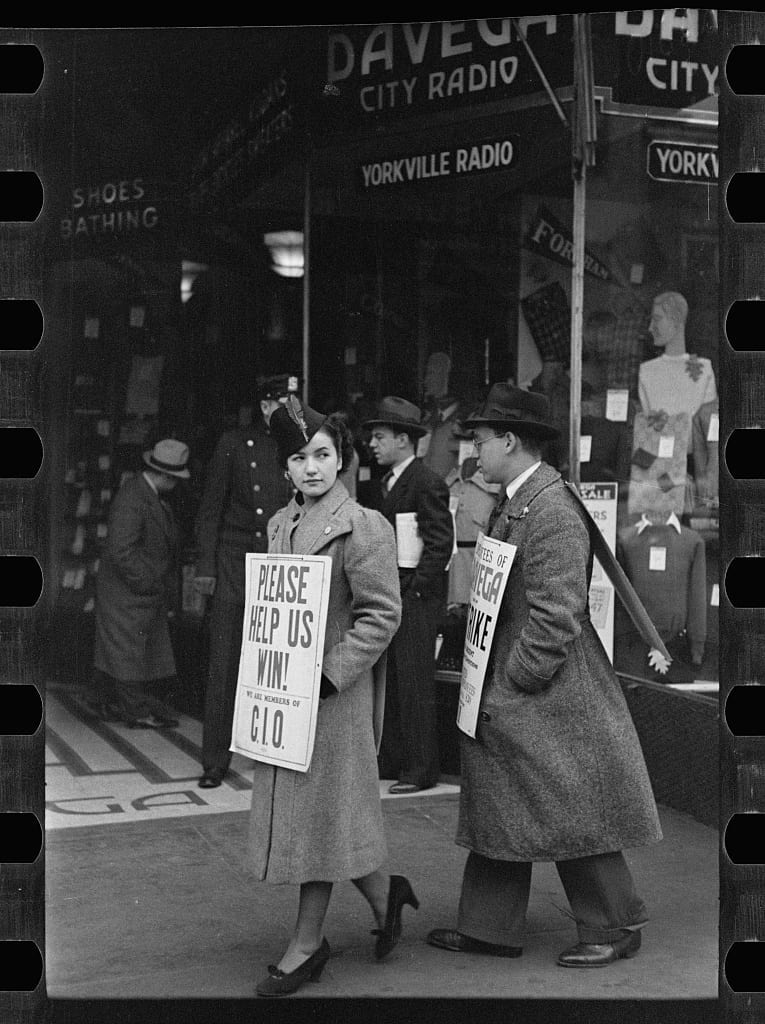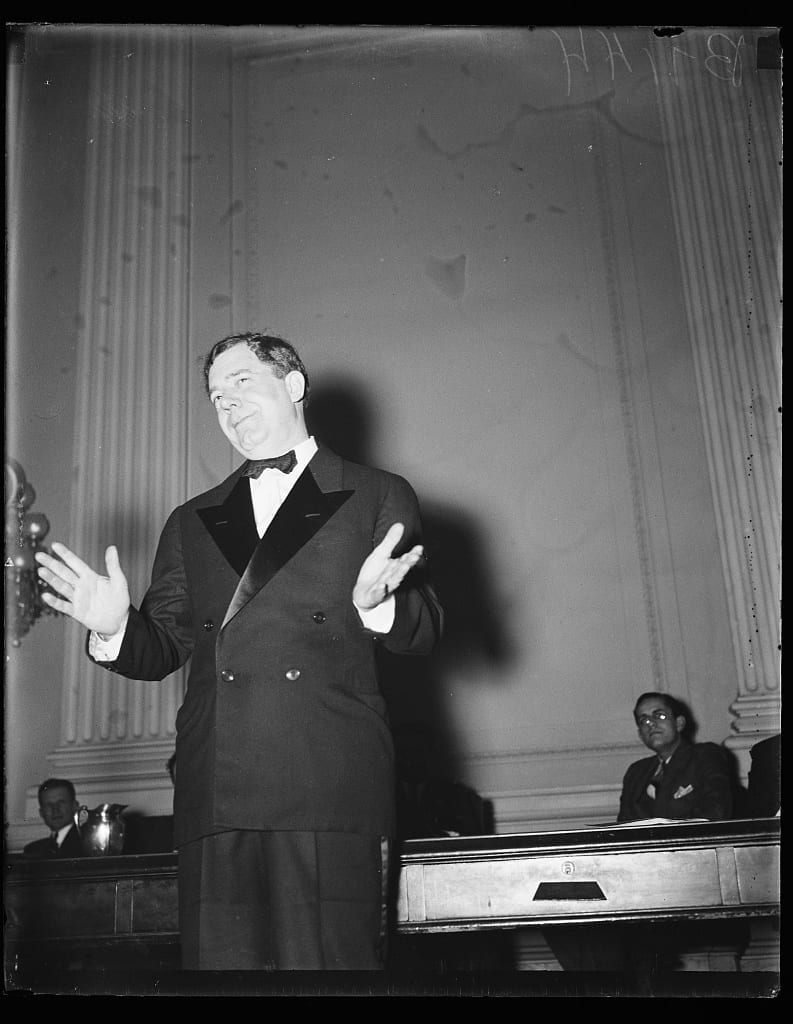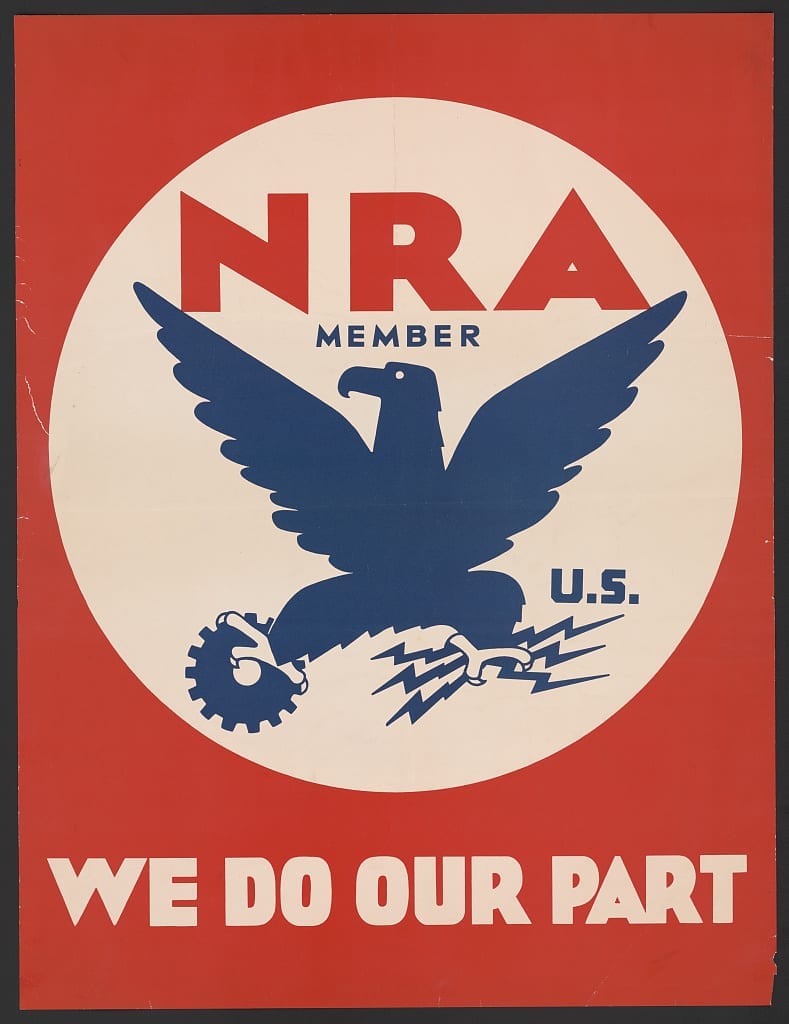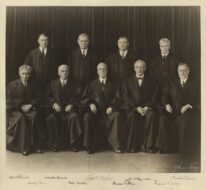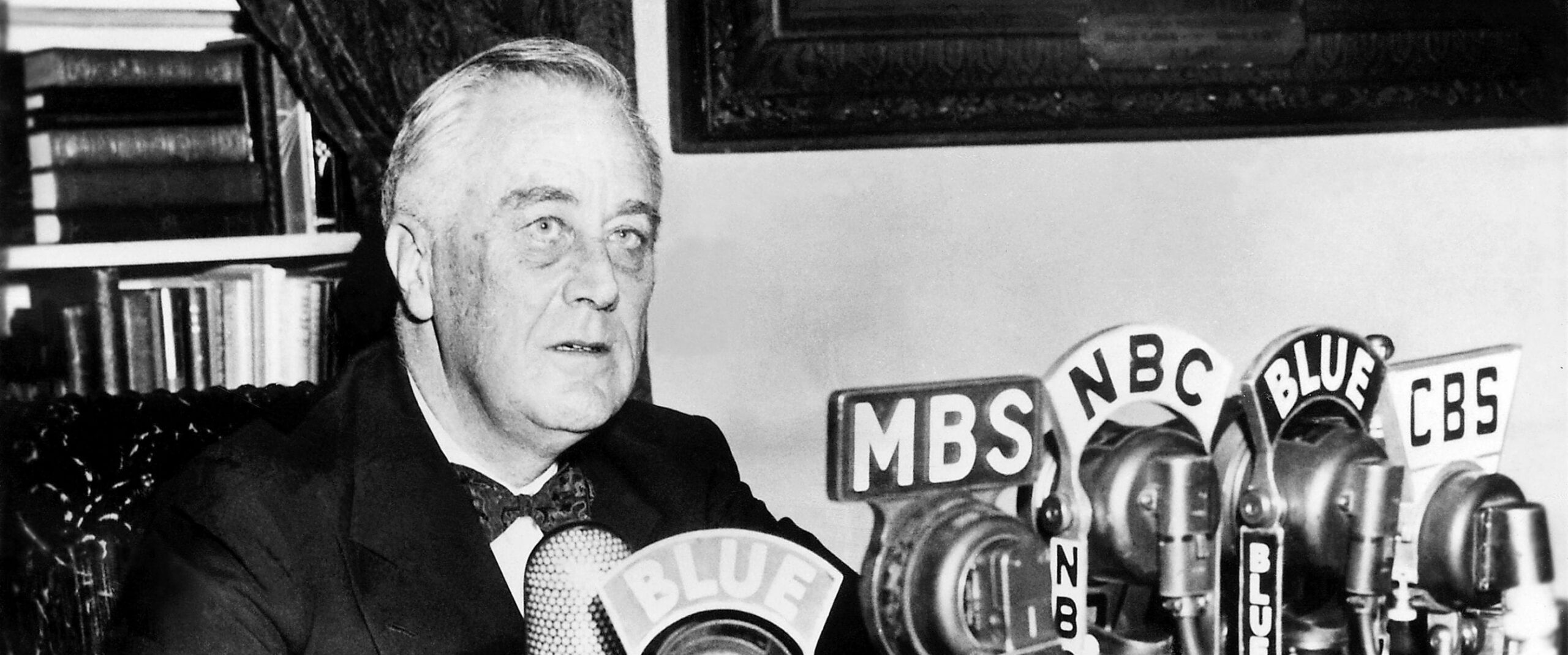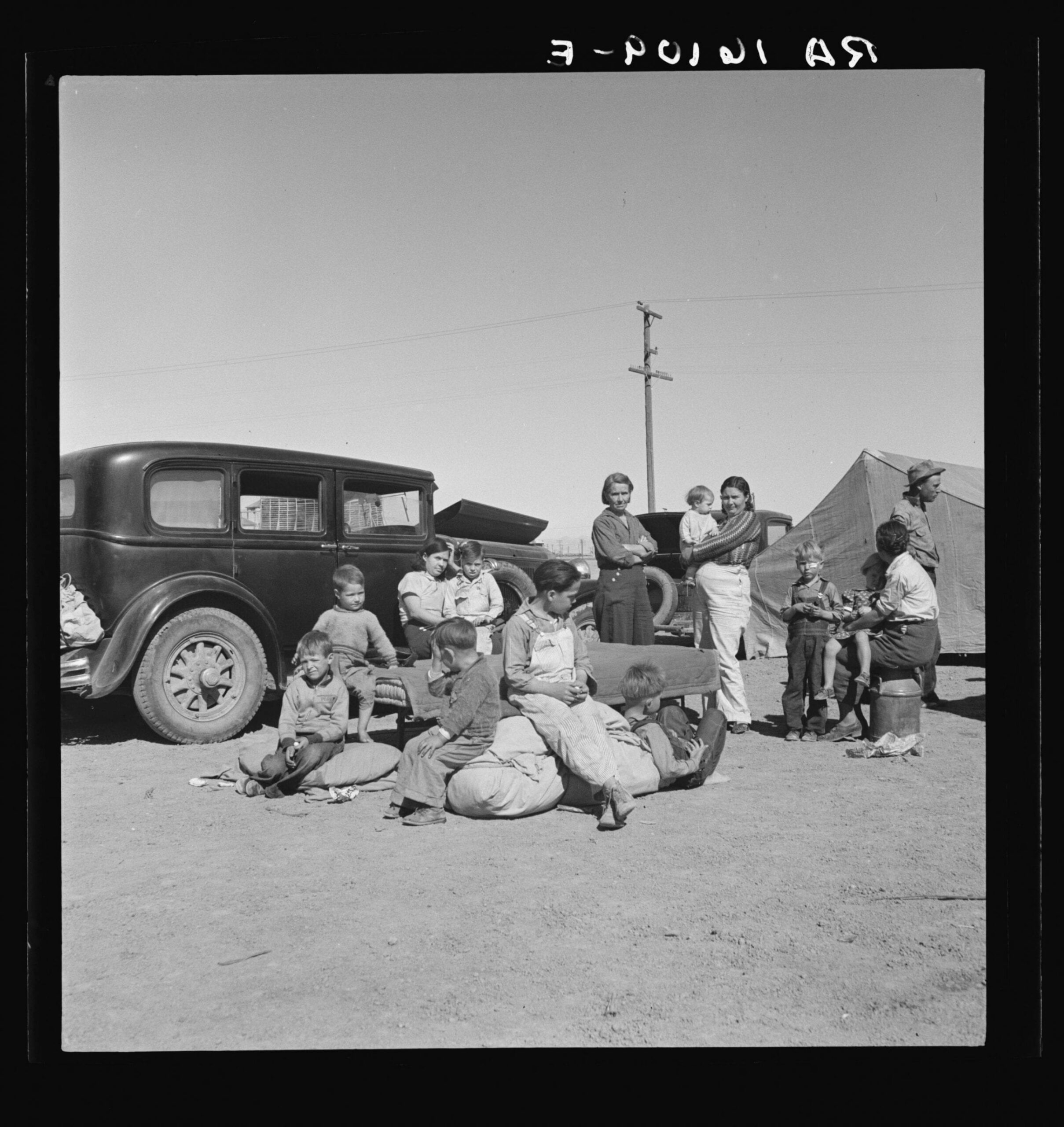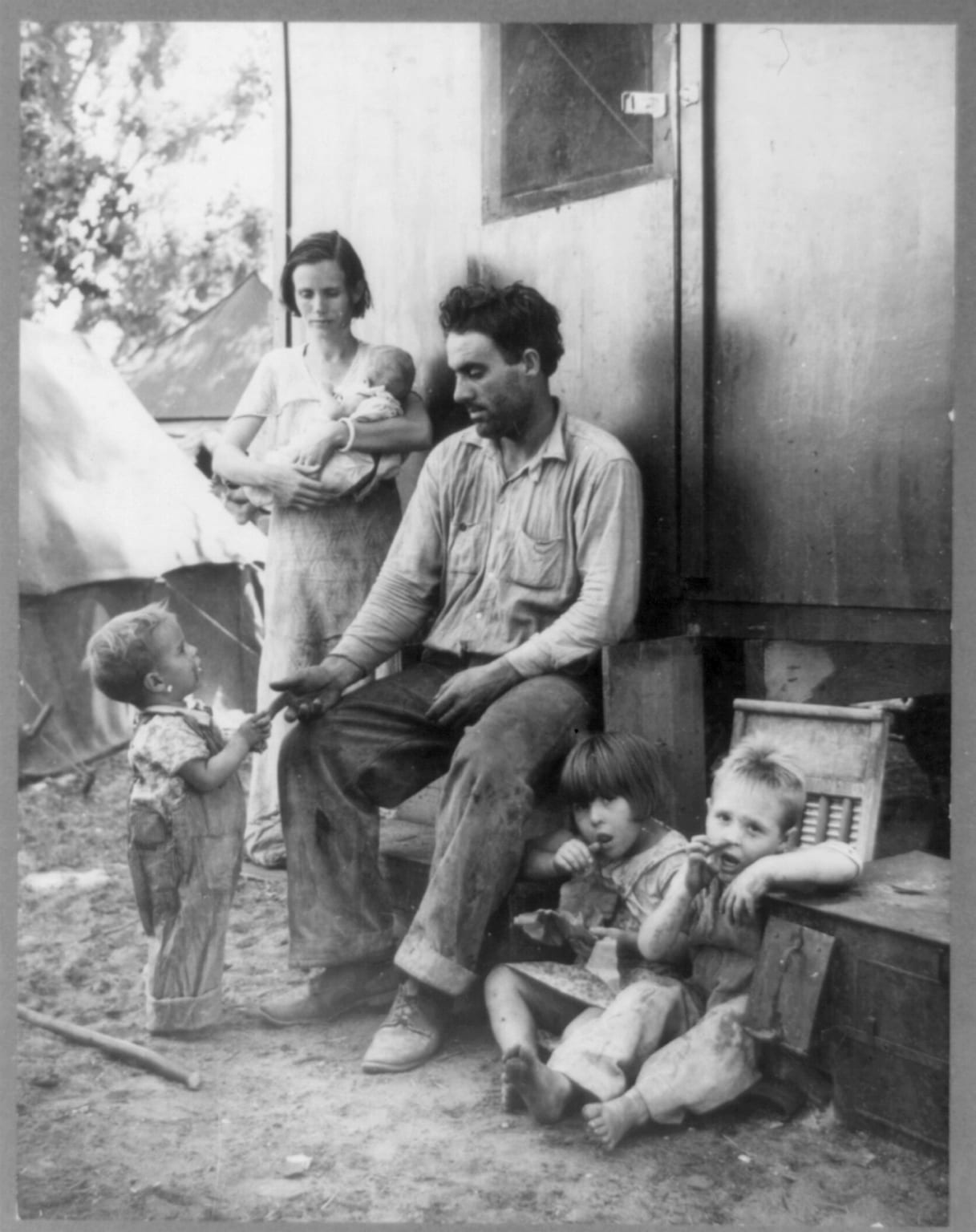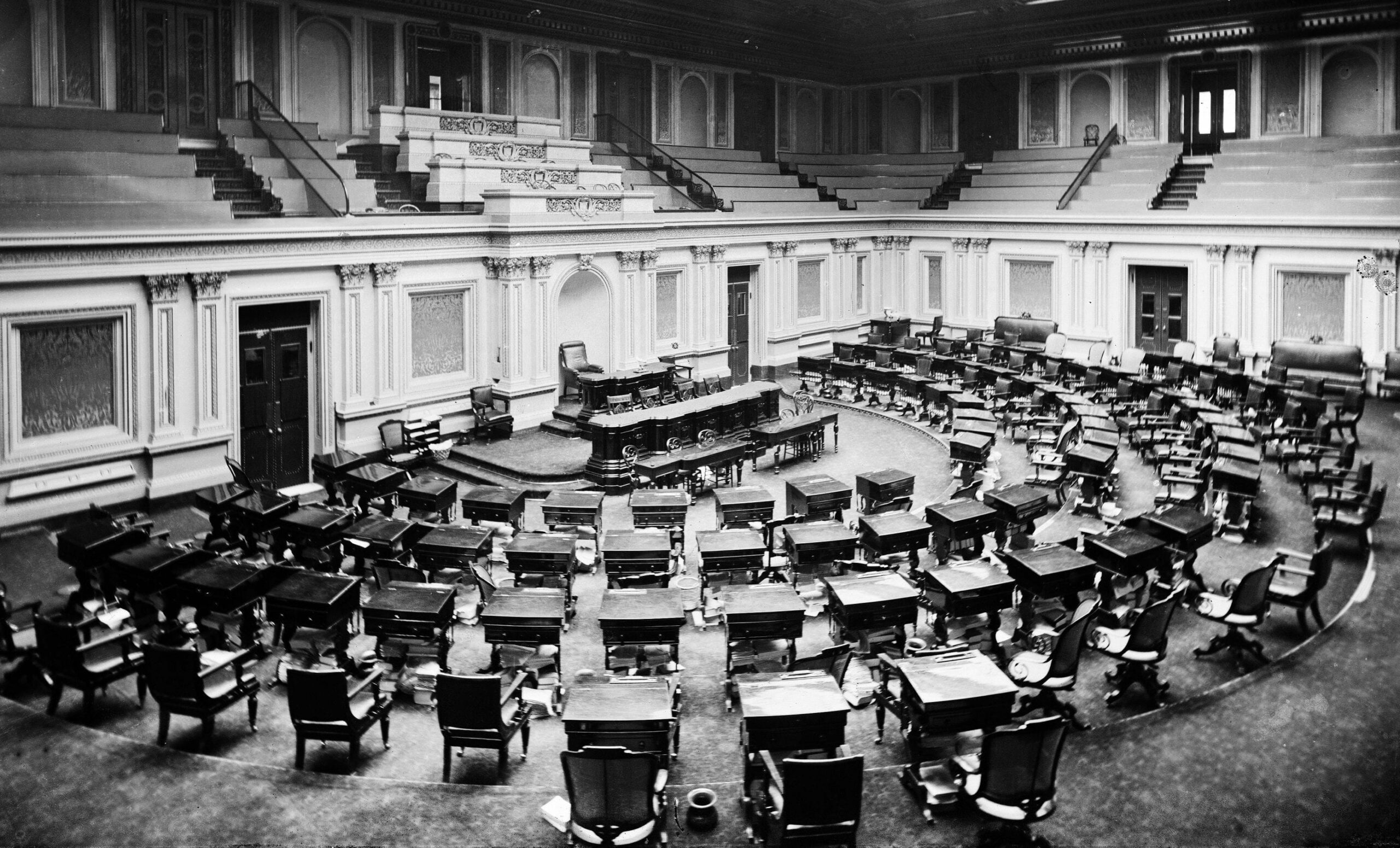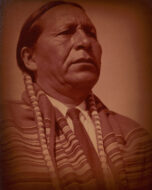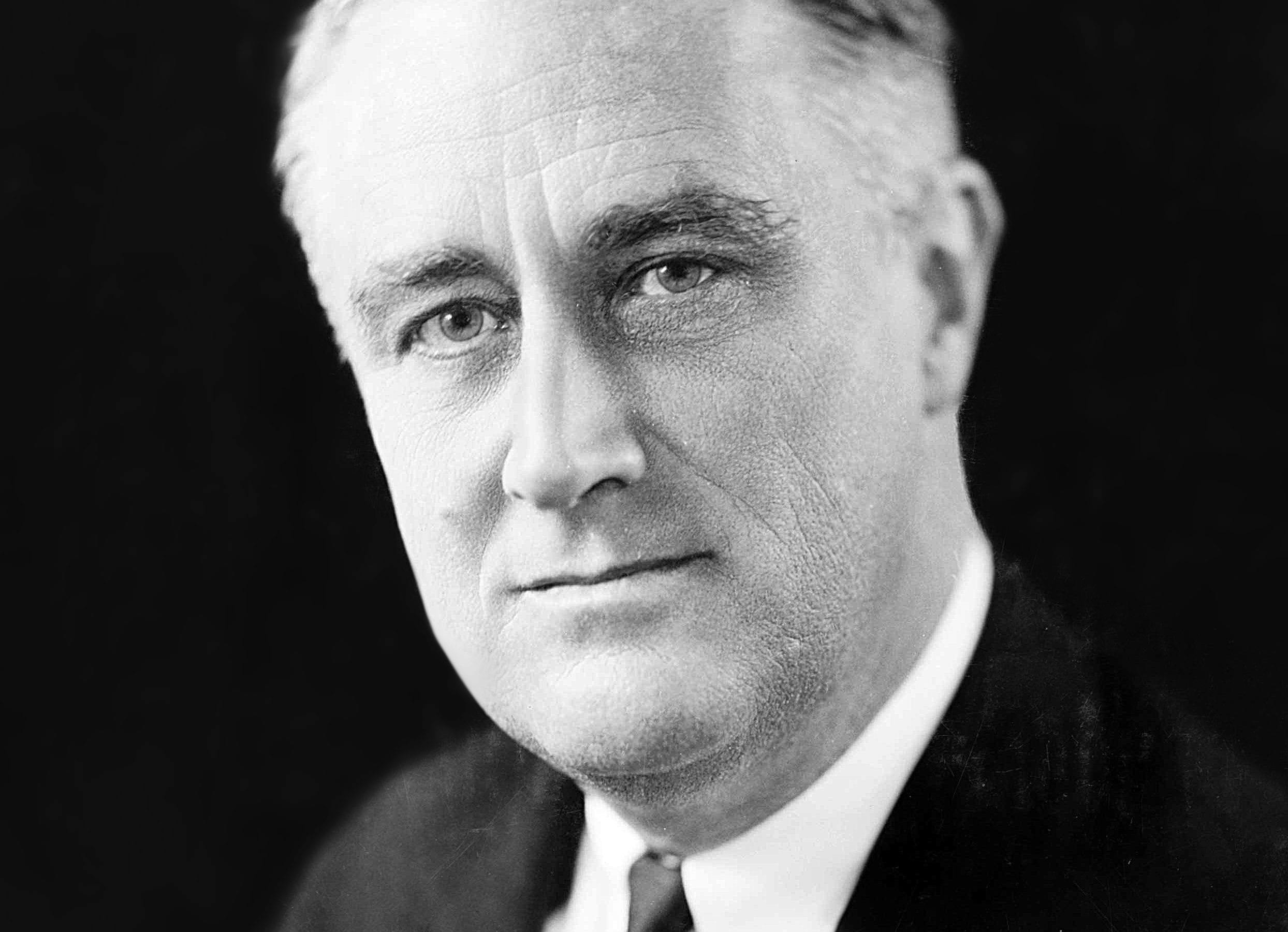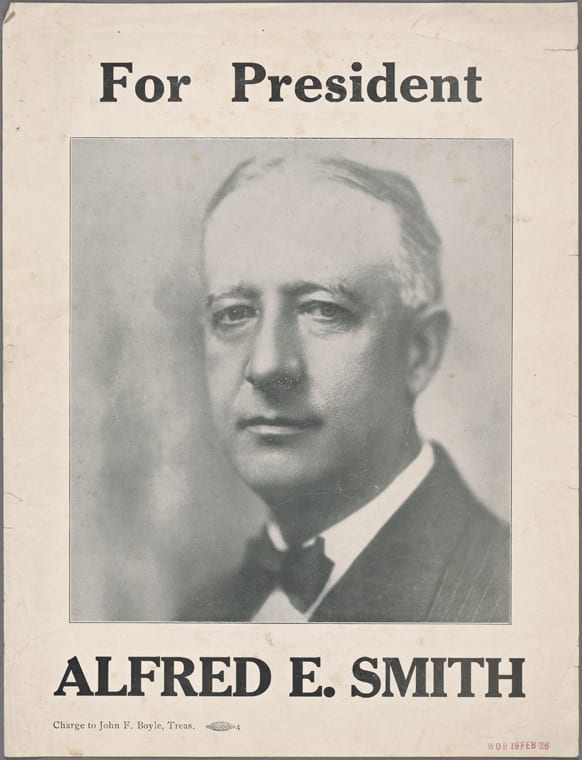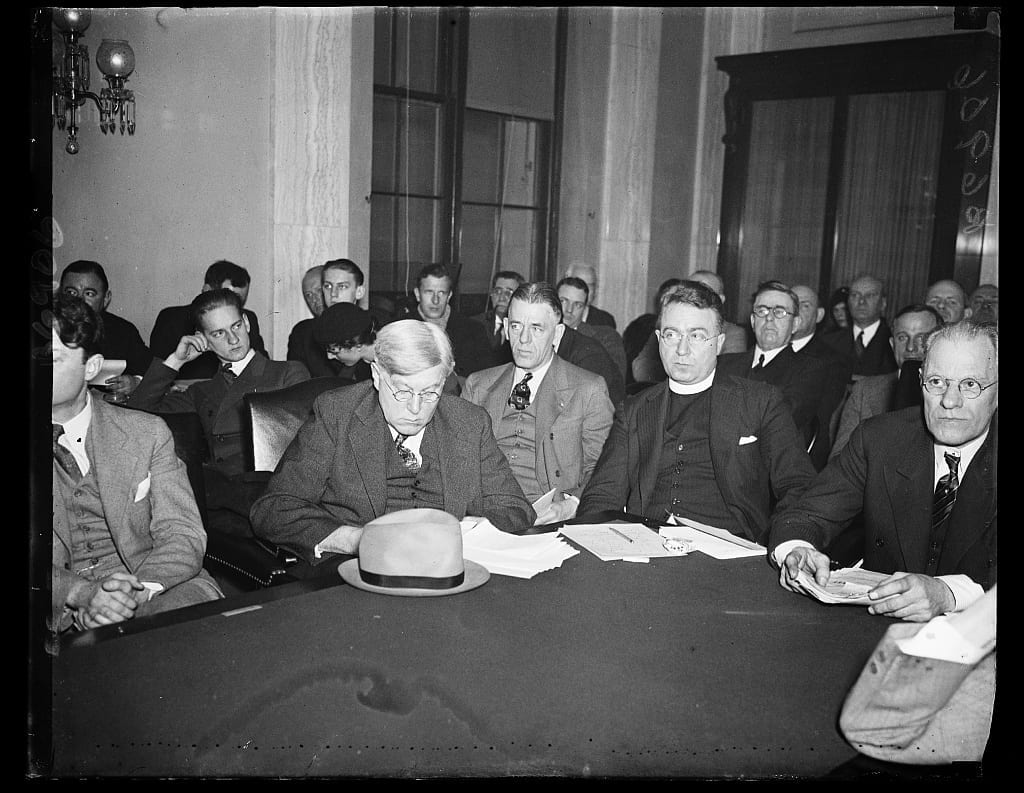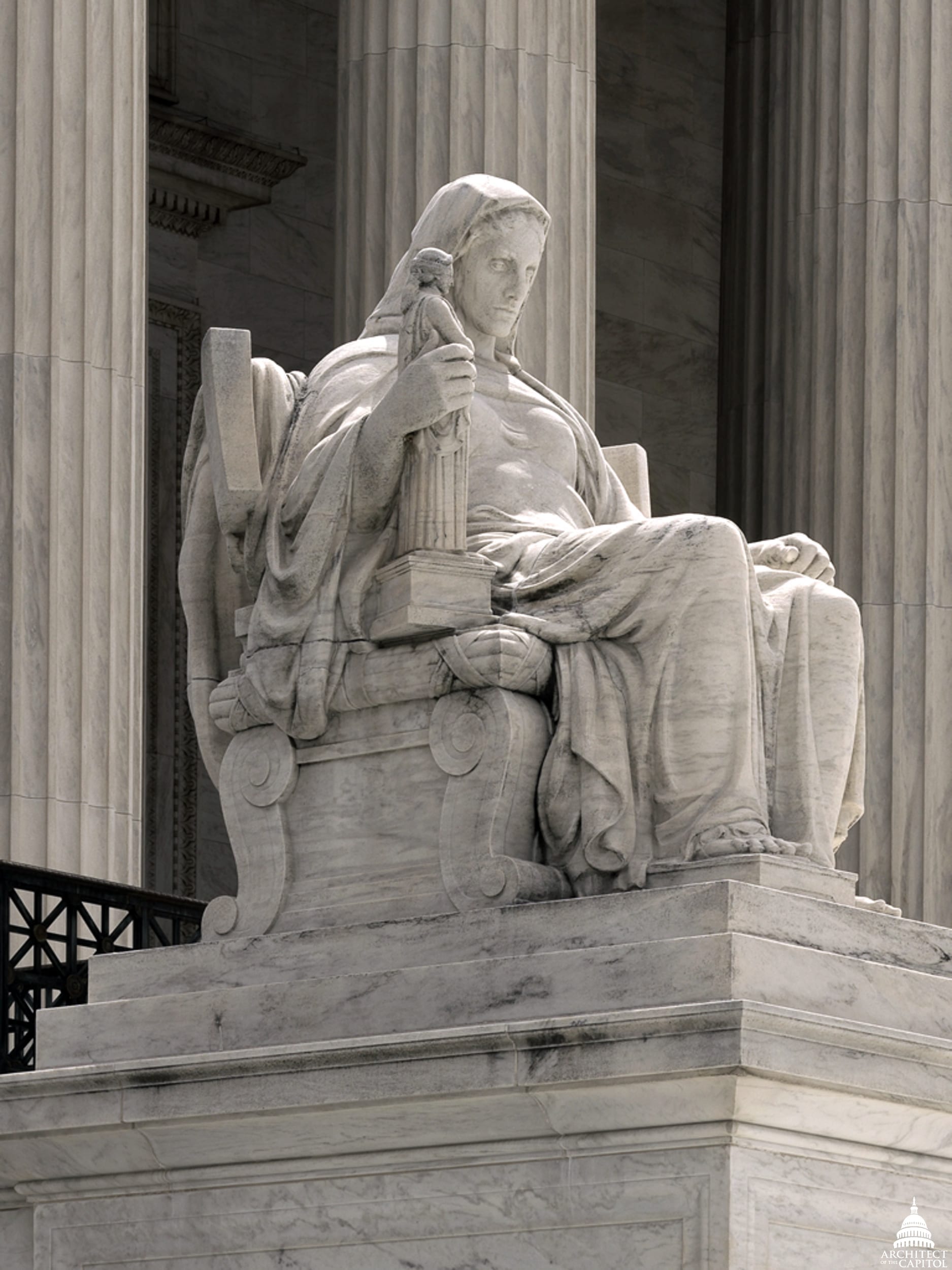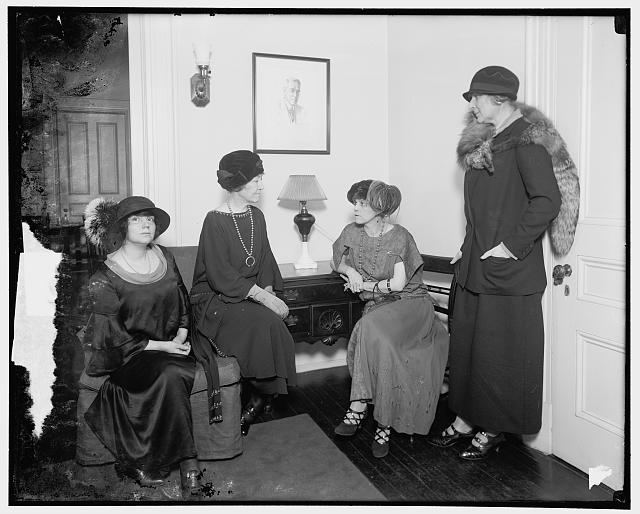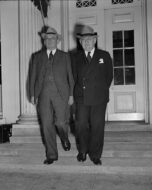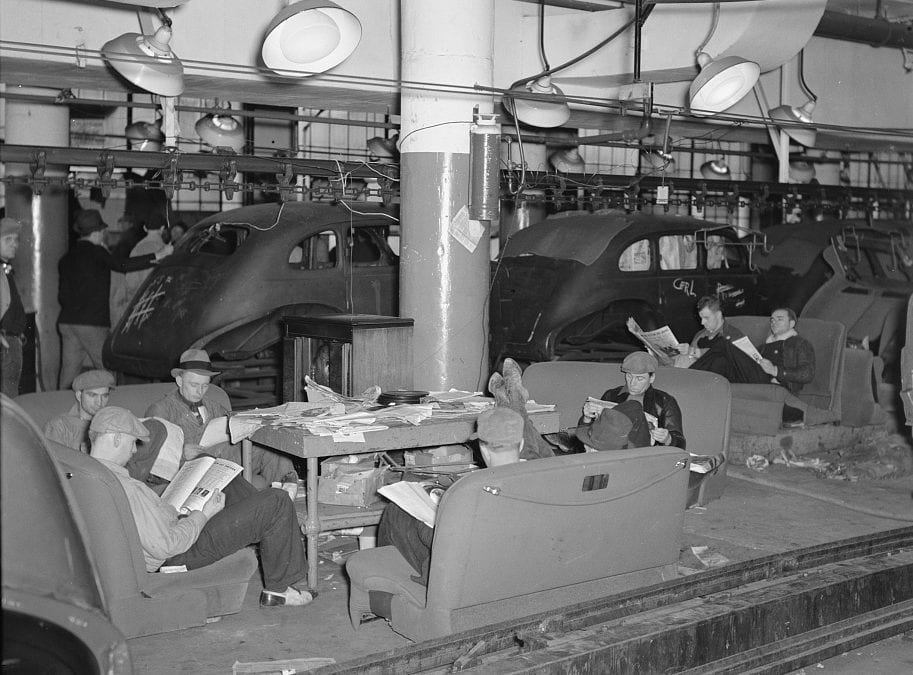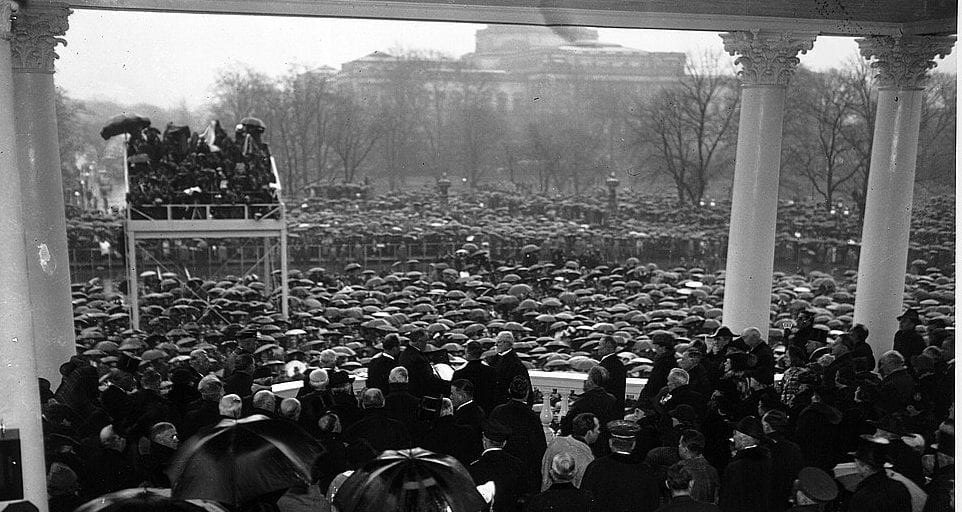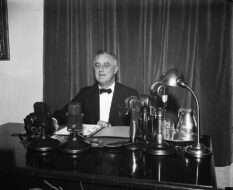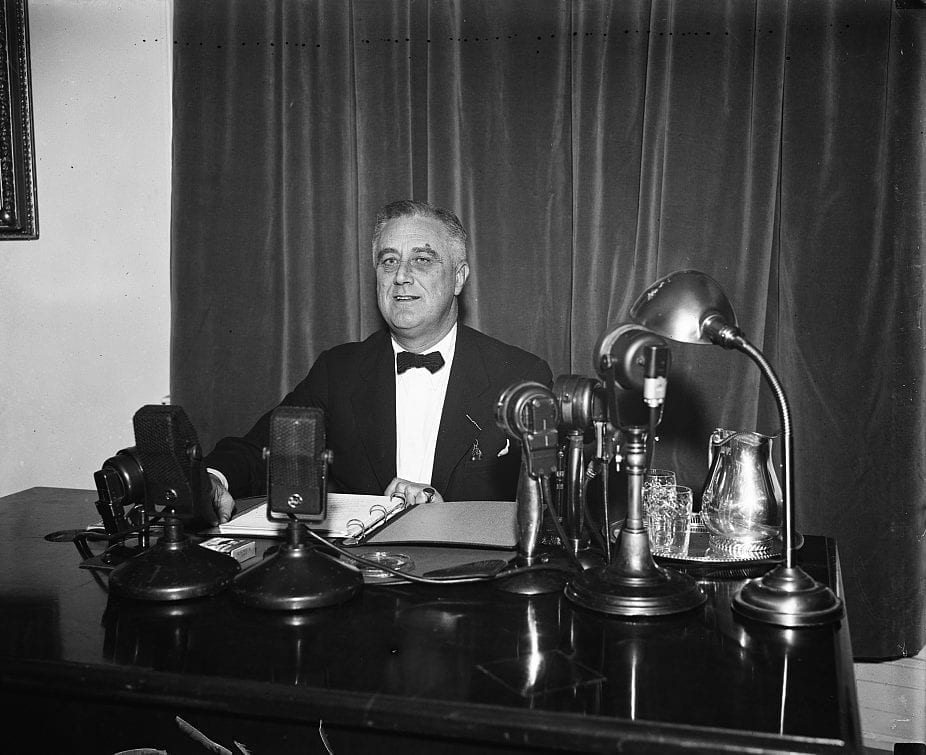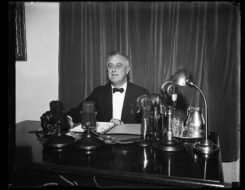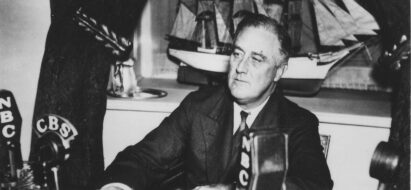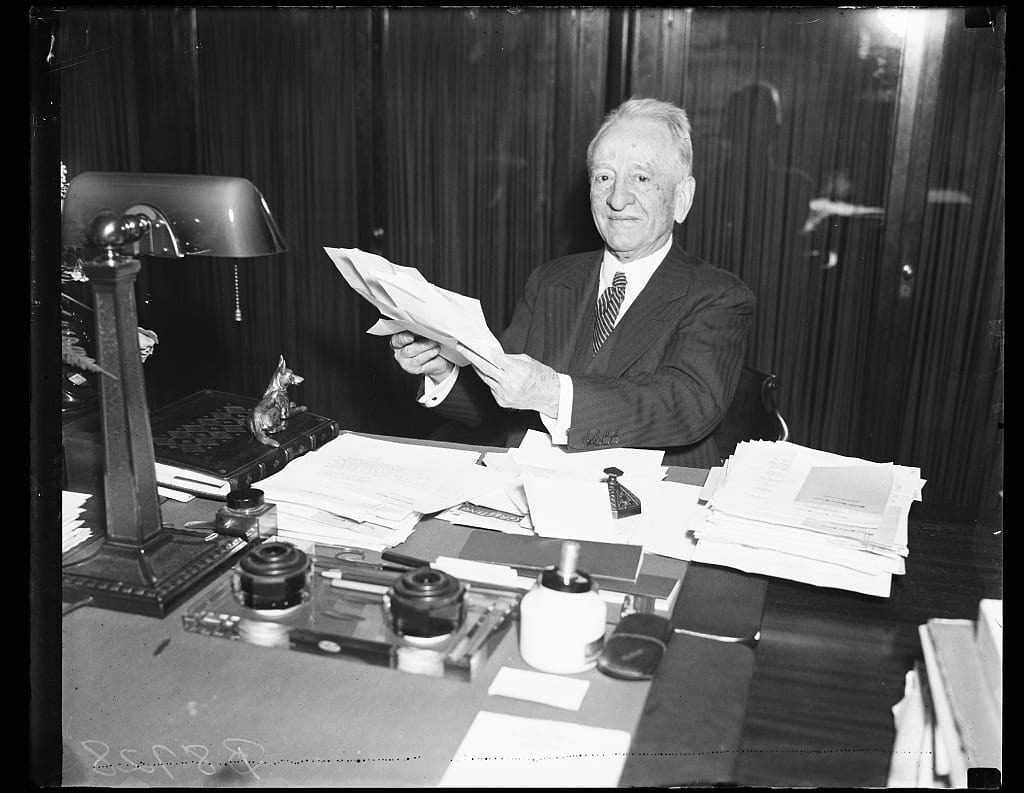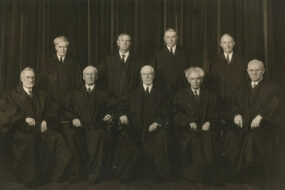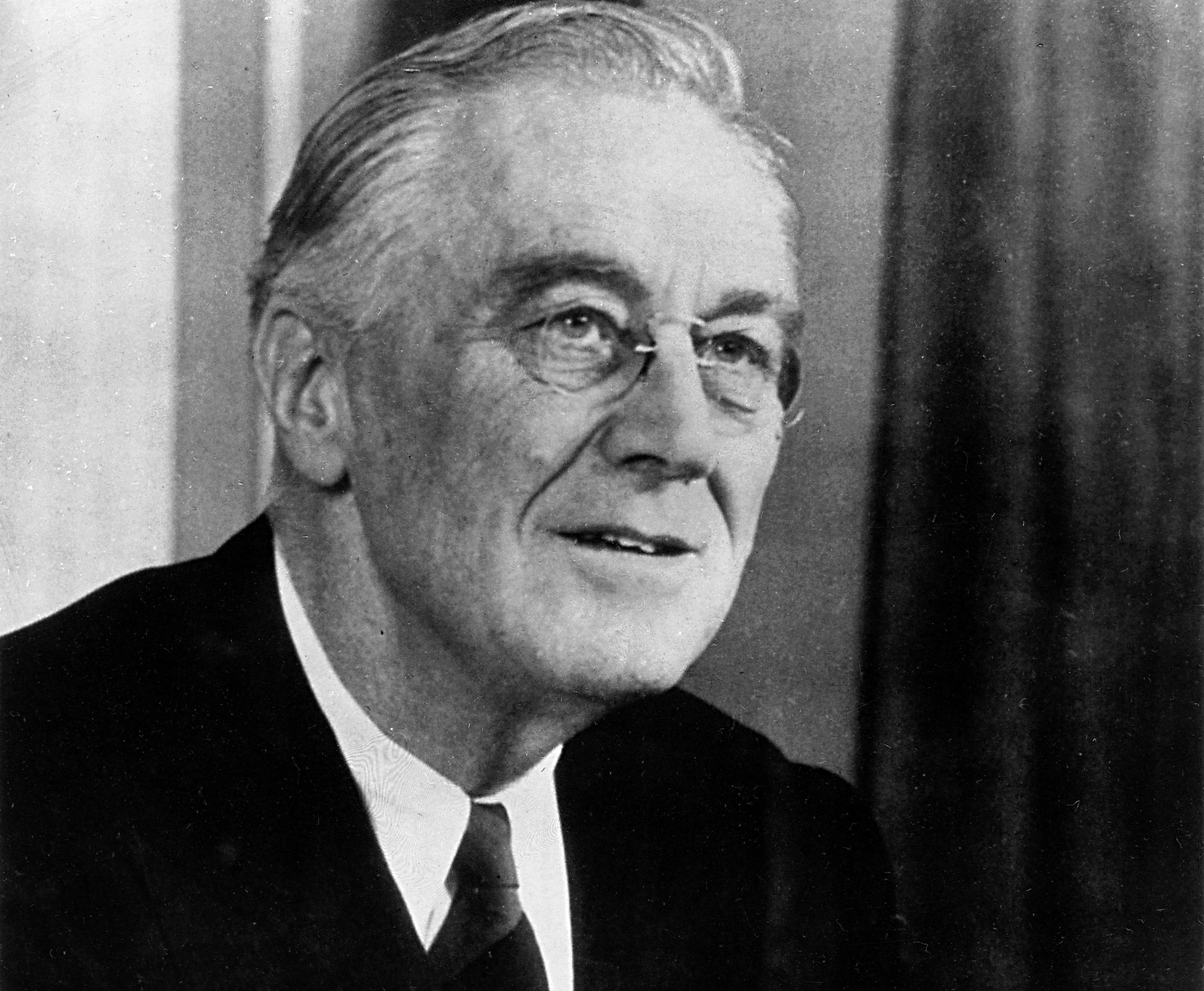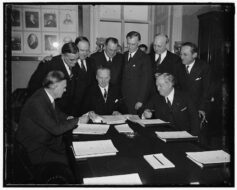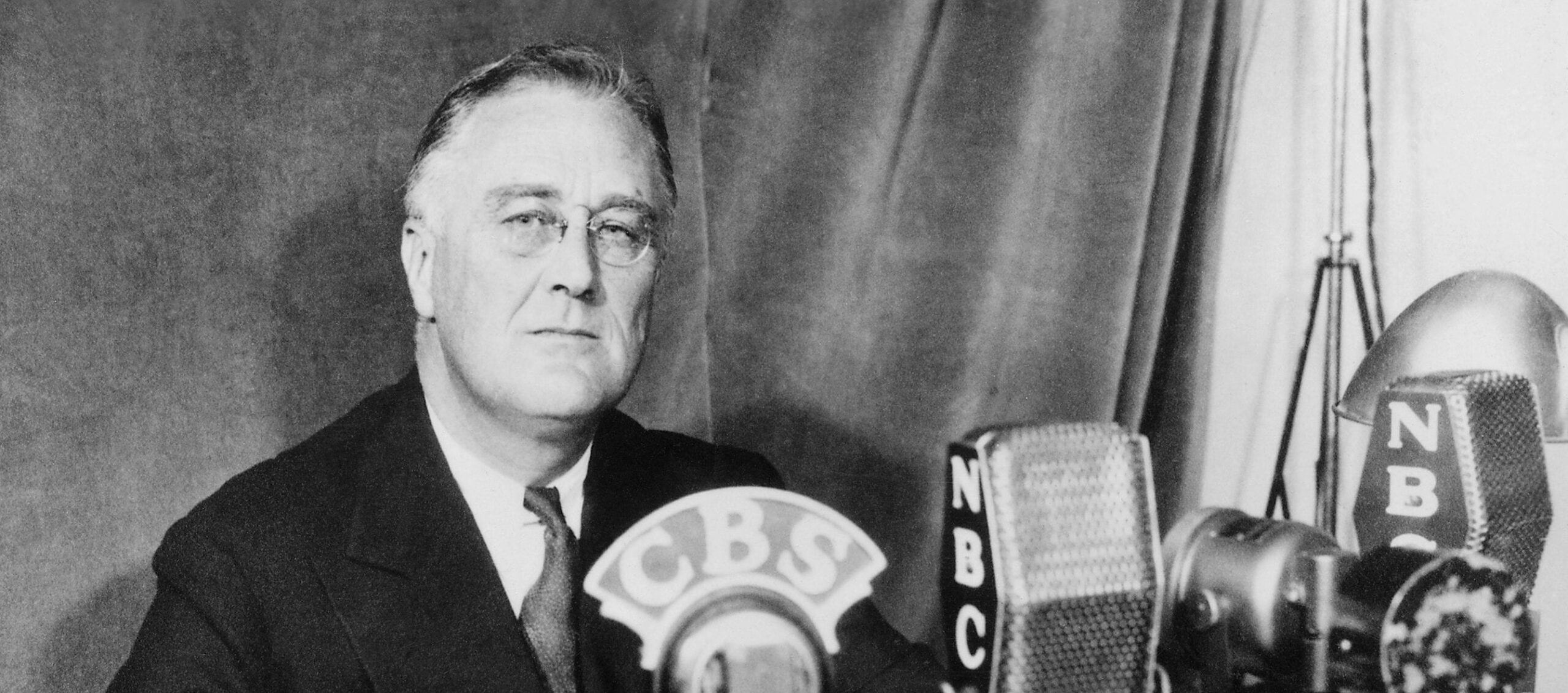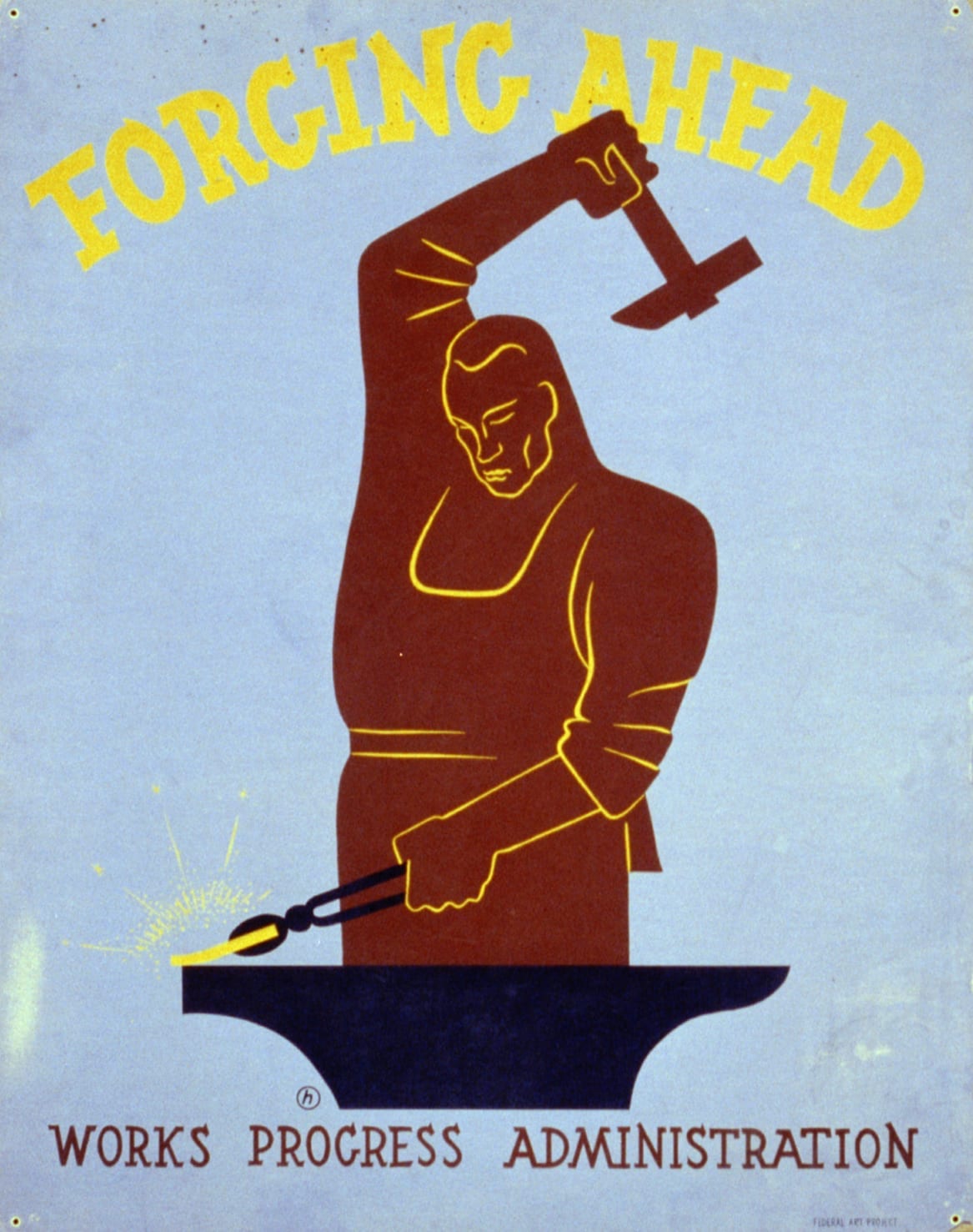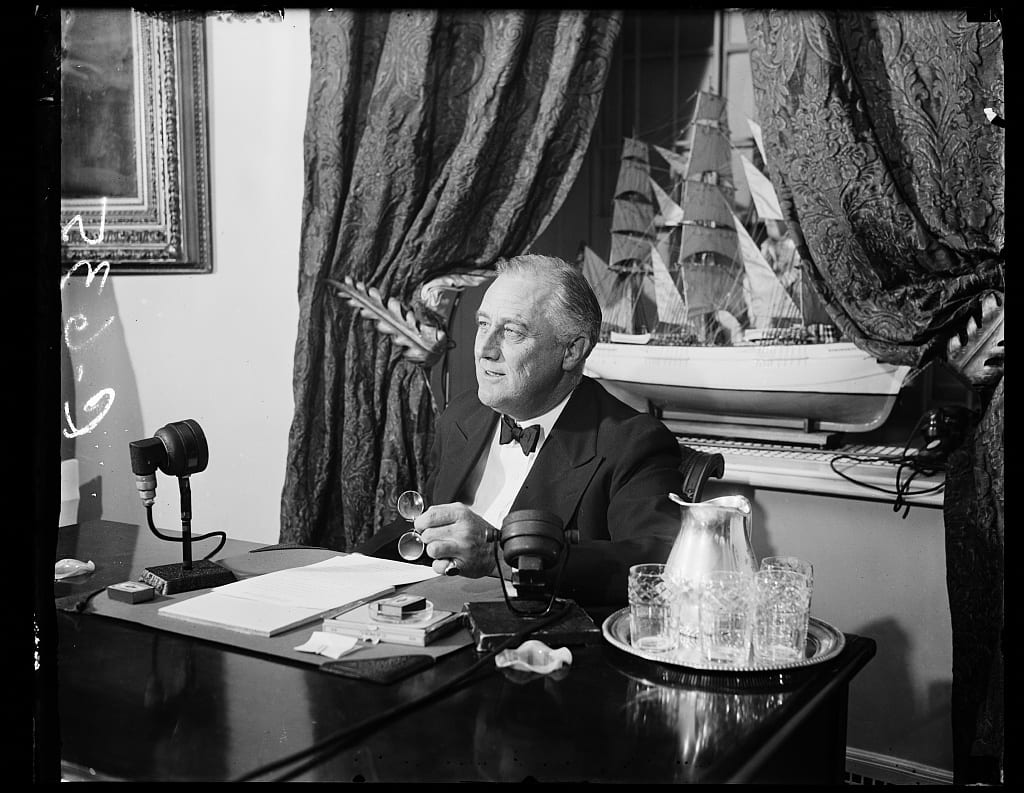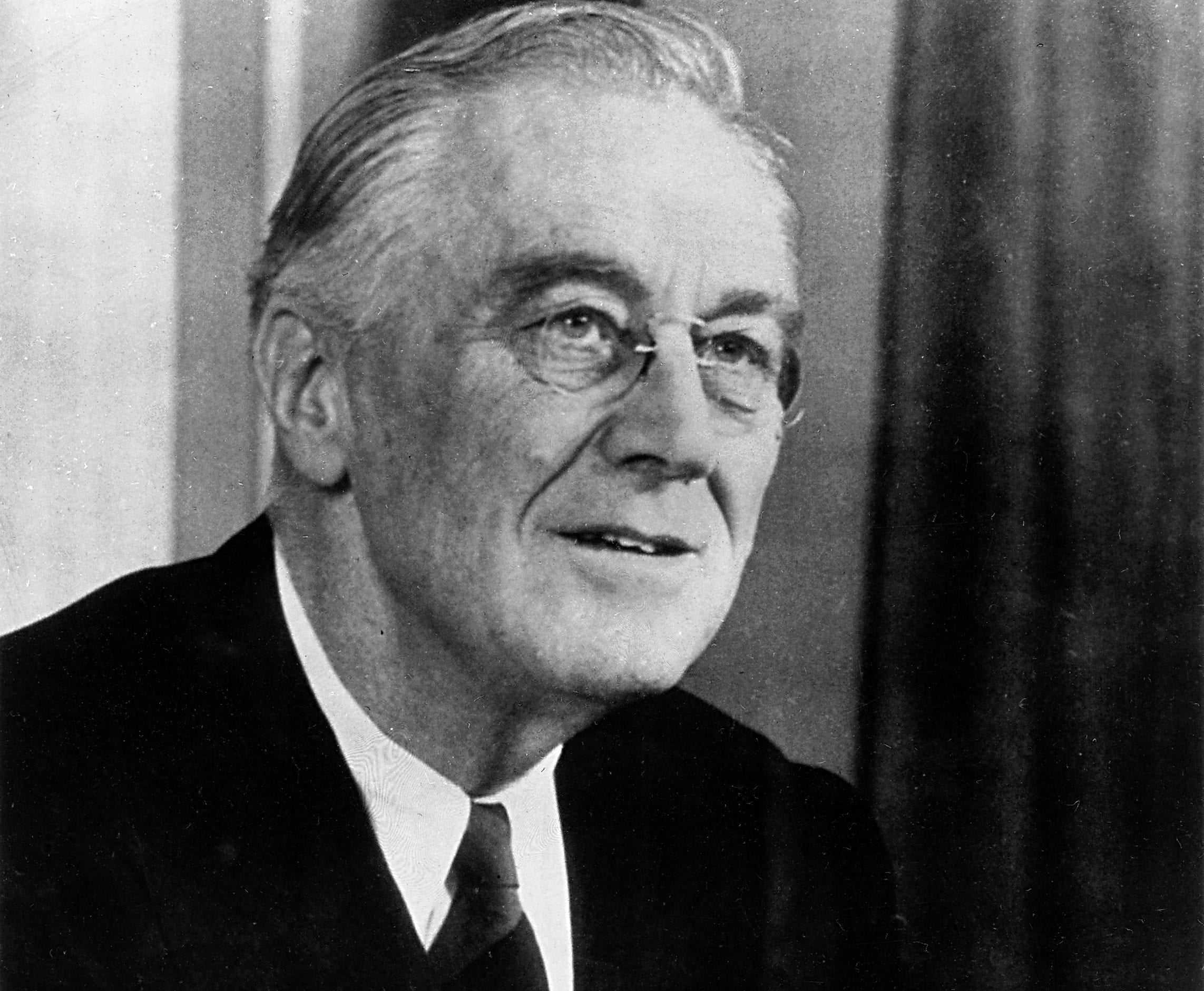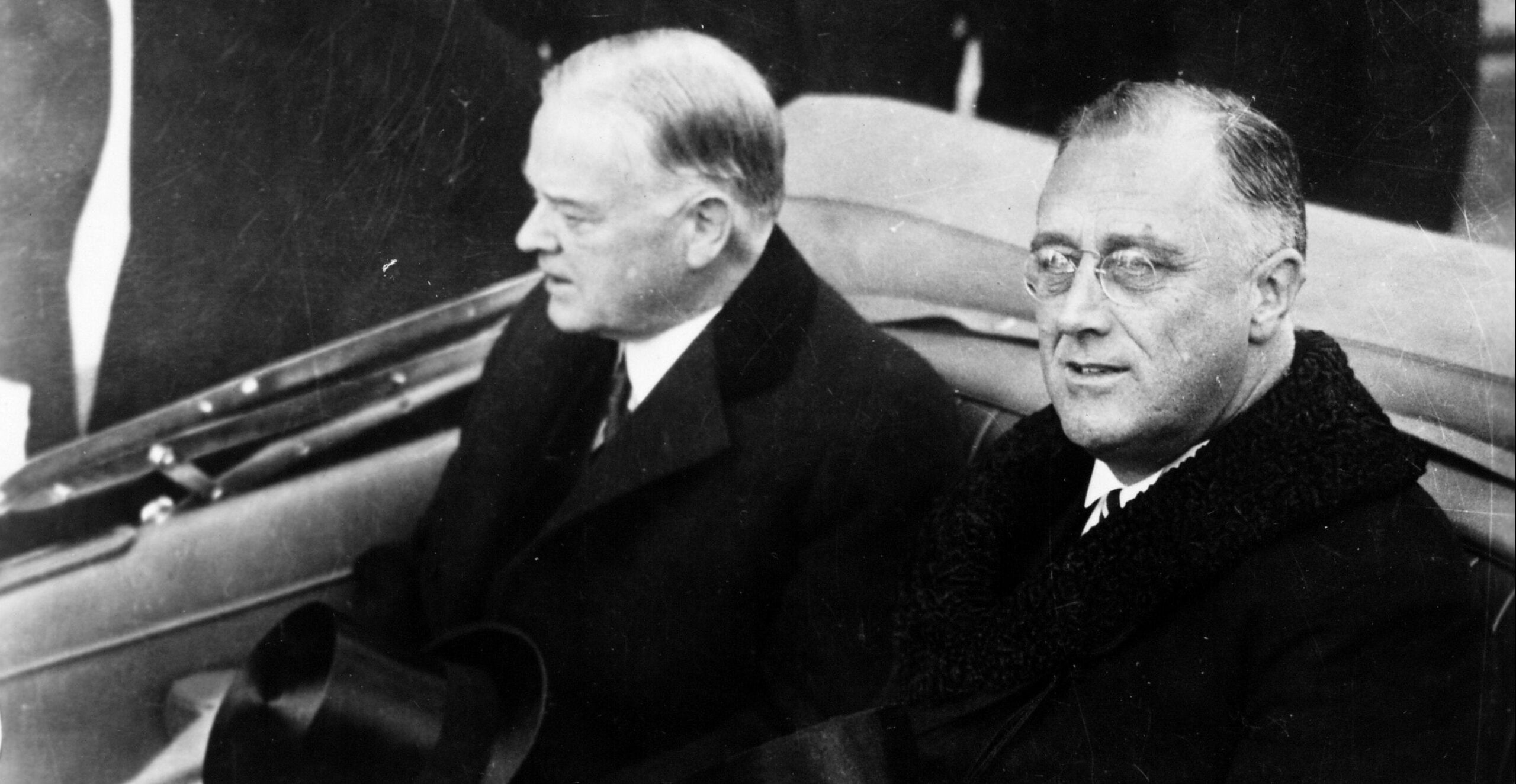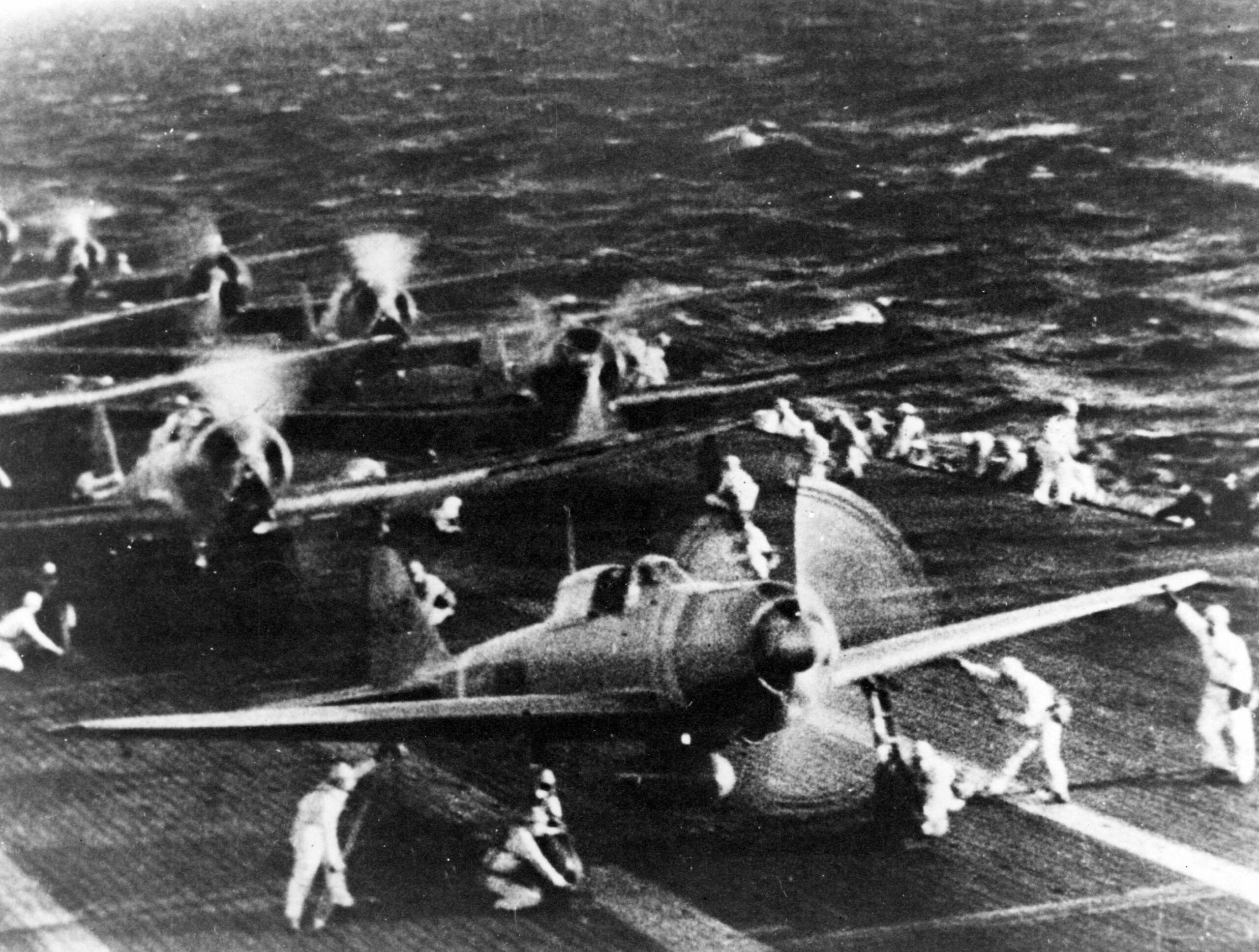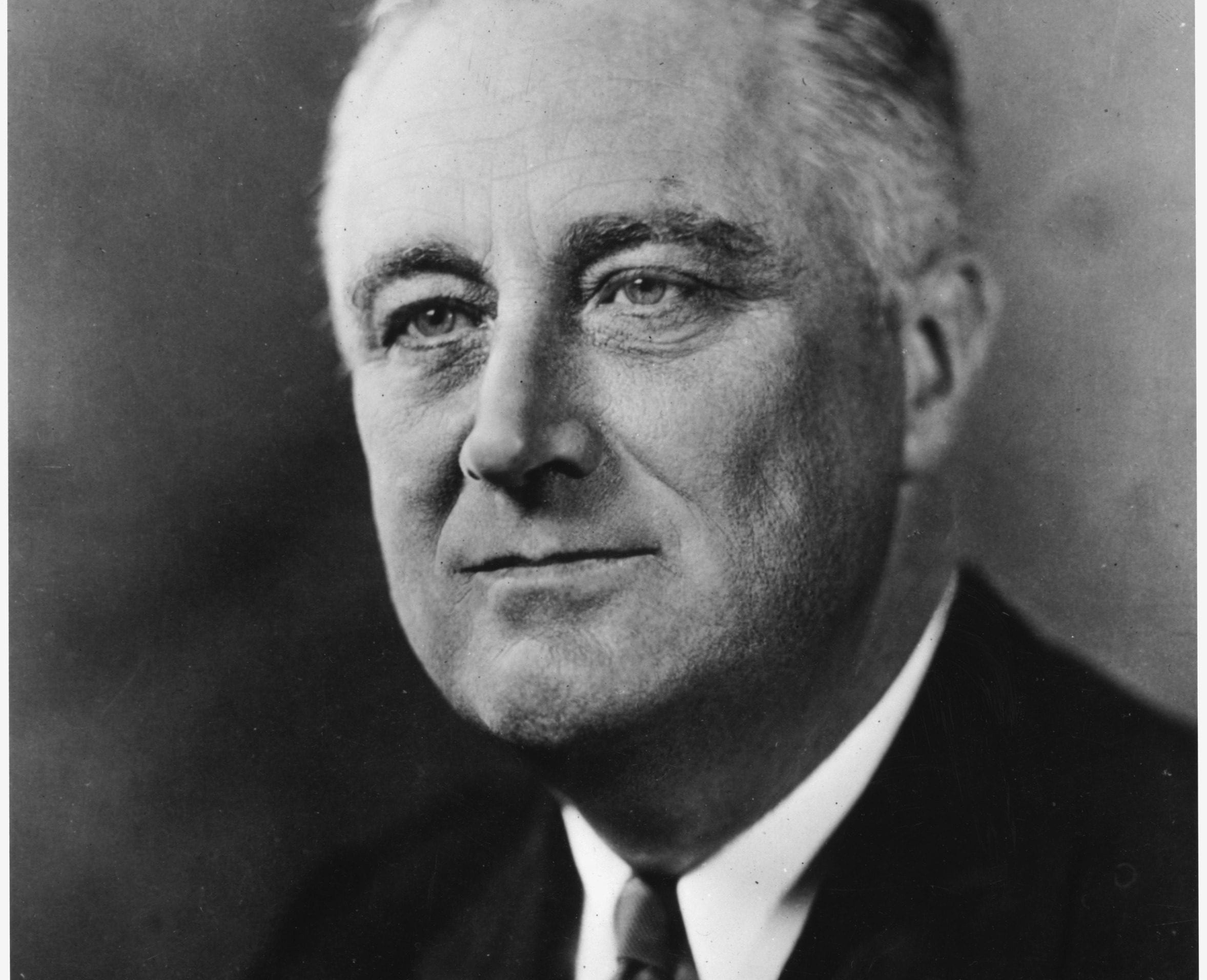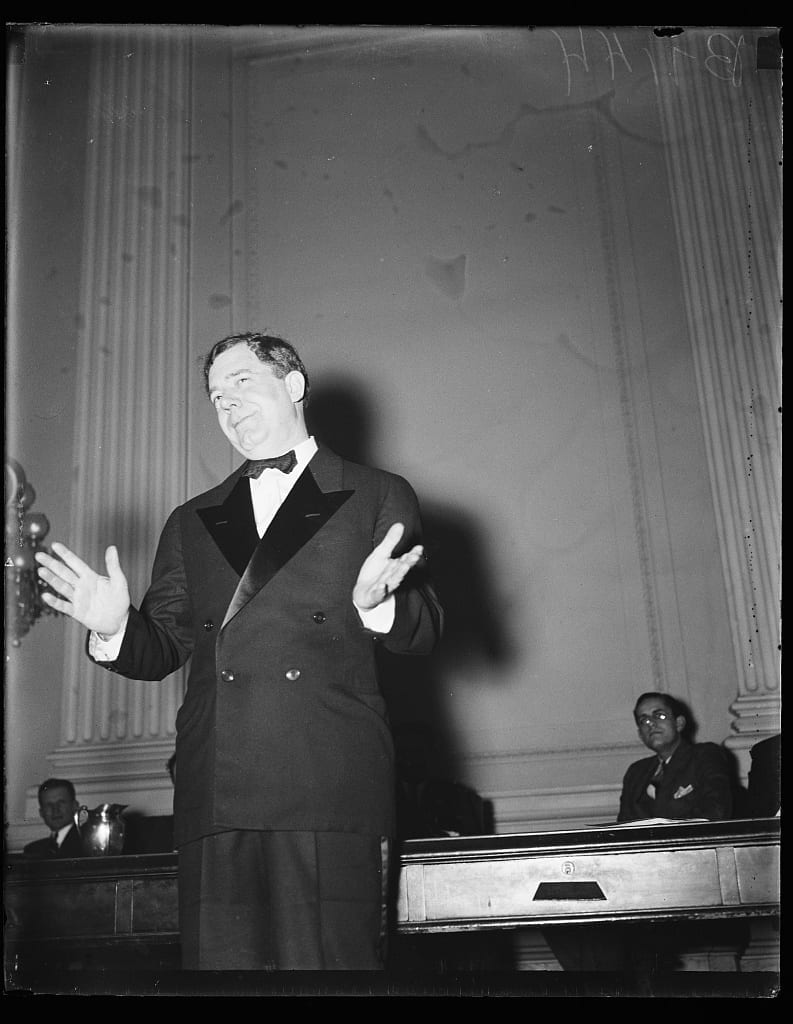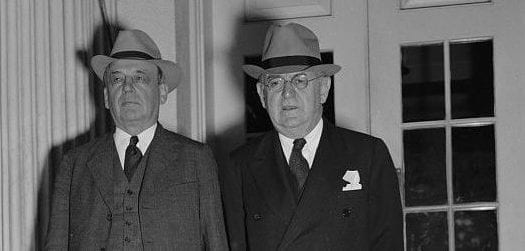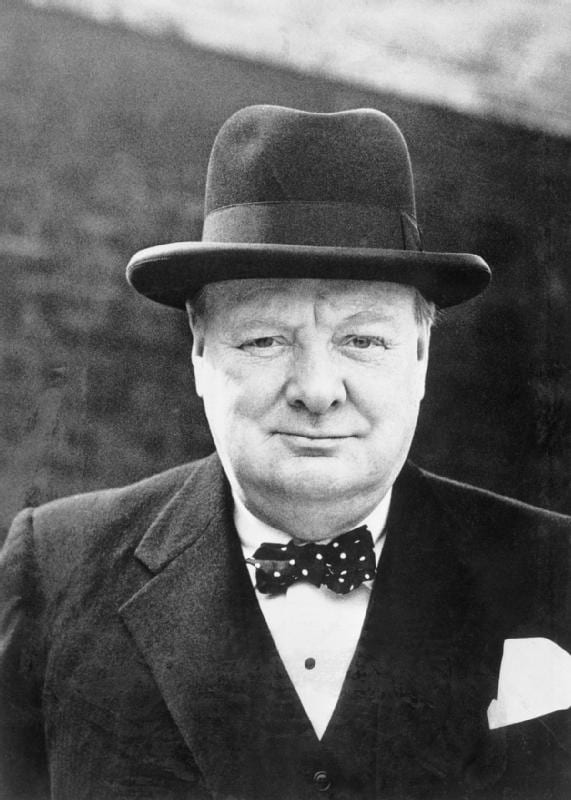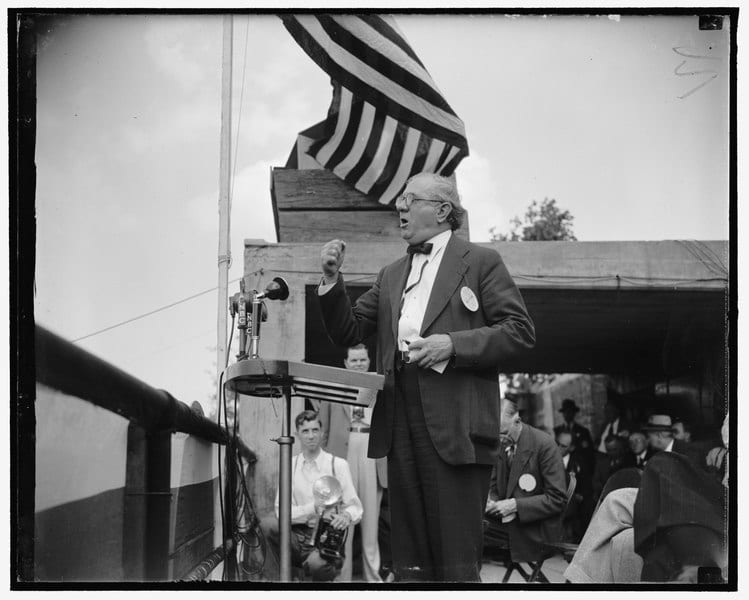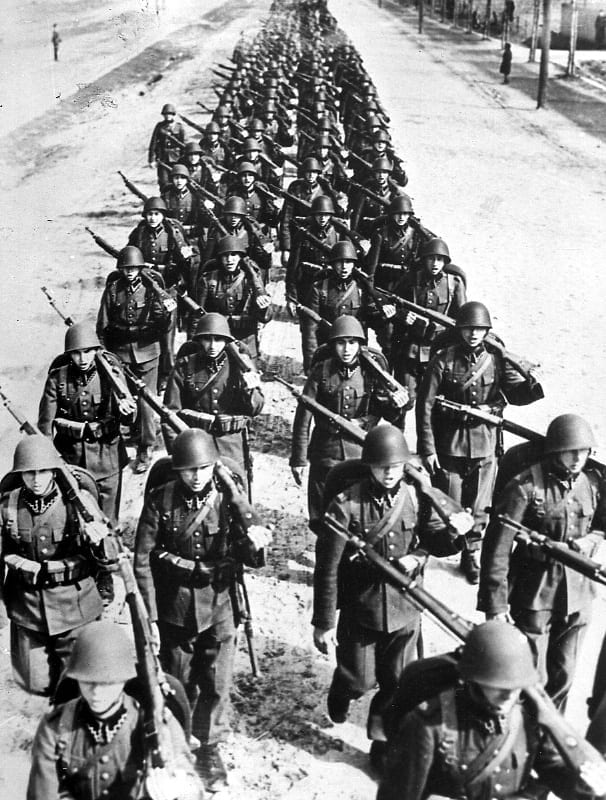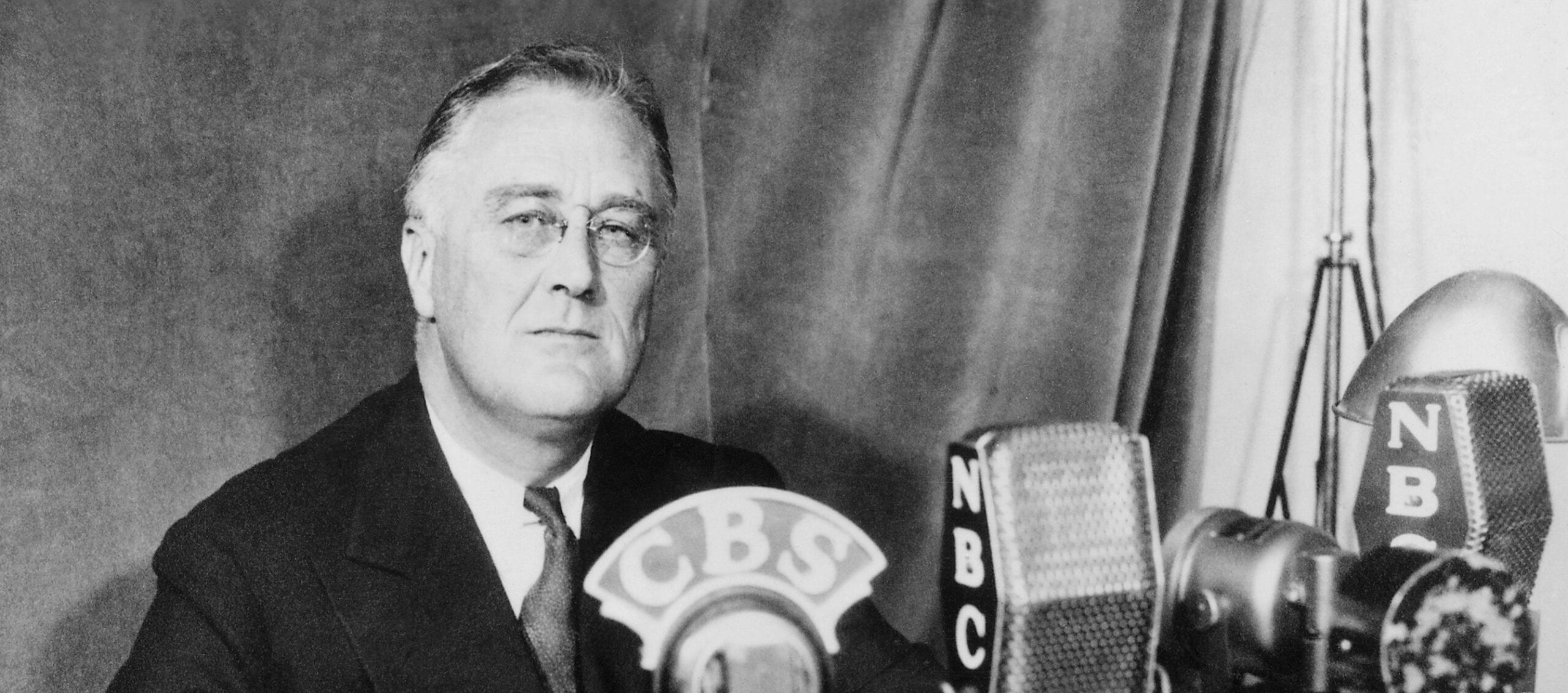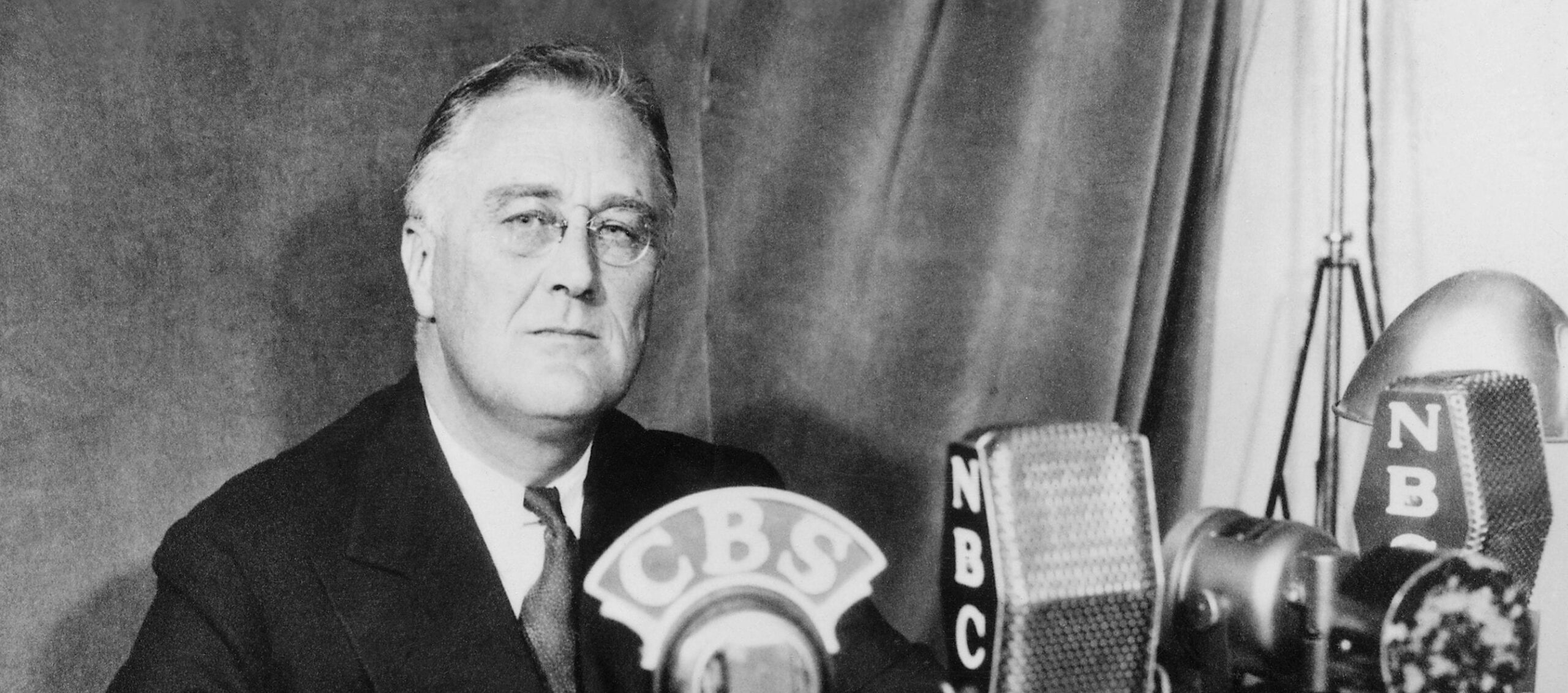

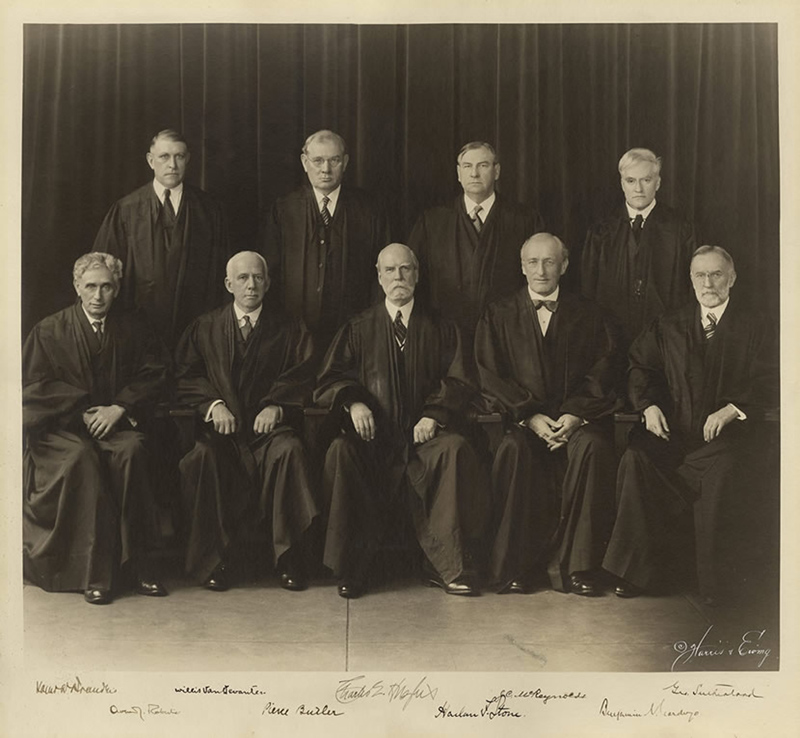
No related resources
Introduction
The National Industrial Recovery Act of 1933 (NIRA) was the hallmark piece of legislation for Franklin Delano Roosevelt’s New Deal. The act aimed to stimulate the economy and reduce unemployment through an innovative institutional arrangement. Under the NIRA, trade associations consisting of representatives from each sector of any particular industry (big business, small businesses, labor, and consumers) would meet and propose industry-wide trade codes. Once codified, the president was authorized under section 3 of the NIRA to put them into effect by executive order, thereby conveniently circumventing the need for congressional legislation.
The Schechter brothers were convicted and fined under the Live Poultry Code for filing false financial reports and engaging in other trade practices in violation of the code, including the sale of diseased chickens. The brothers challenged their conviction in federal court maintaining that the NIRA was unconstitutional on a number of grounds. For the purpose of understanding the separation of powers, we focus on their claim that the NIRA violated the nondelegation doctrine, which contends that all federal legislative powers are vested solely in Congress by virtue of the vesting clause in Article I, and that Congress cannot delegate that power to another branch of government. The opinion of Chief Justice Hughes (1862–1948), writing for a unanimous Court, offers an important perspective on the constitutional limits of the legislative power and the role of the executive branch in addressing a national crisis.
295 U.S. 495 (1935), https://supreme.justia.com/cases/federal/us/295/495/
Mr. Chief Justice Hughes delivered the opinion of the Court.
Petitioners. . . were convicted in the District Court of the United States for the Eastern District of New York on eighteen counts of an indictment charging violations of what is known as the “Live Poultry Code.”1…[T]he defendants contended that the code had been adopted pursuant to an unconstitutional delegation by Congress of legislative power. . . .
First. . . .We are told that the provision of the statute authorizing the adoption of codes must be viewed in the light of the grave national crisis with which Congress was confronted.2 Undoubtedly, the conditions to which power is addressed are always to be considered when the exercise of power is challenged. Extraordinary conditions may call for extraordinary remedies. But the argument necessarily stops short of an attempt to justify action which lies outside the sphere of constitutional authority. Extraordinary conditions do not create or enlarge constitutional power. The Constitution established a national government with powers deemed to be adequate, as they have proved to be both in war and peace, but these powers of the national government are limited by the constitutional grants. . . .
The further point is urged that the national crisis demanded a broad and intensive cooperative effort by those engaged in trade and industry, and that this necessary cooperation was sought to be fostered by permitting them to initiate the adoption of codes. But the statutory plan is not simply one for voluntary effort. It does not seek merely to endow voluntary trade or industrial associations or groups with privileges or immunities. It involves the coercive exercise of the lawmaking power.3 The codes of fair competition which the statute attempts to authorize are codes of laws. If valid, they place all persons within their reach under the obligation of positive law, binding equally those who assent and those who do not assent. Violations of the provisions of the codes are punishable as crimes.
Second. The Question of the Delegation of Legislative Power. We recently had occasion to review the pertinent decisions and the general principles which govern the determination of this question. The Constitution provides that “All legislative powers herein granted shall be vested in a Congress of the United States, which shall consist of a Senate and House of Representatives” (Article 1, section 1). And the Congress is authorized “To make all Laws which shall be necessary and proper for carrying into execution” its general powers (Article 1, section 8, paragraph 18). The Congress is not permitted to abdicate or to transfer to others the essential legislative functions with which it is thus vested. We have repeatedly recognized the necessity of adapting legislation to complex conditions involving a host of details with which the national legislature cannot deal directly. We pointed out in the Panama Refining Company case4 that the Constitution has never been regarded as denying to Congress the necessary resources of flexibility and practicality which will enable it to perform its function in laying down policies and establishing standards, while leaving to selected instrumentalities the making of subordinate rules within prescribed limits and the determination of facts to which the policy as declared by the legislature is to apply. But we said that the constant recognition of the necessity and validity of such provisions, and the wide range of administrative authority which has been developed by means of them, cannot be allowed to obscure the limitations of the authority to delegate, if our constitutional system is to be maintained.
Accordingly, we look to the statute to see whether Congress has overstepped these limitations—whether Congress in authorizing “codes of fair competition” has itself established the standards of legal obligation, thus performing its essential legislative function, or, by the failure to enact such standards, has attempted to transfer that function to others. . . .
What is meant by “fair competition” as the term is used in the act? Does it refer to a category established in the law, and is the authority to make codes limited accordingly? Or is it used as a convenient designation for whatever set of laws the formulators of a code for a particular trade or industry may propose and the president may approve (subject to certain restrictions), or the president may himself prescribe, as being wise and beneficent provisions for the government of the trade or industry in order to accomplish the broad purposes of rehabilitation, correction, and expansion which are stated in the first section of title 1?5…
The government urges that the codes will “consist of rules of competition deemed fair for each industry by representative members of that industry—by the persons most vitally concerned and most familiar with its problems.”
. . . But would it be seriously contended that Congress could delegate its legislative authority to trade or industrial associations or groups so as to empower them to enact the laws they deem to be wise and beneficent for the rehabilitation and expansion of their trade or industries? Could trade or industrial associations or groups be constituted legislative bodies for that purpose because such associations or groups are familiar with the problems of their enterprises?. . .The answer is obvious. Such a delegation of legislative power is unknown to our law, and is utterly inconsistent with the constitutional prerogatives and duties of Congress.
The question, then, turns upon the authority which section 3 of the Recovery Act6 vests in the president to approve or prescribe. If the codes have standing as penal statutes, this must be due to the effect of the executive action. But Congress cannot delegate legislative power to the president to exercise an unfettered discretion to make whatever laws he thinks may be needed or advisable for the rehabilitation and expansion of trade or industry. . . .
. . .As already noted, the president in approving a code may impose his own conditions, adding to or taking from what is proposed, as “in his discretion” he thinks necessary “to effectuate the policy” declared by the act. Of course, he has no less liberty when he prescribes a code on his own motion or on complaint, and he is free to prescribe one if a code has not been approved. The act provides for the creation by the president of administrative agencies to assist him, but the action or reports of such agencies, or of his other assistants their recommendations and findings in relation to the making of codes—have no sanction beyond the will of the president, who may accept, modify, or reject them as he pleases. . . .
To summarize and conclude upon this point: Section 3 of the Recovery Act is without precedent. It supplies no standards for any trade, industry, or activity. It does not undertake to prescribe rules of conduct to be applied to particular states of fact determined by appropriate administrative procedure. Instead of prescribing rules of conduct, it authorizes the making of codes to prescribe them. . . .In view of the scope of that broad declaration and of the nature of the few restrictions that are imposed, the discretion of the president in approving or prescribing codes, and thus enacting laws for the government of trade and industry throughout the country, is virtually unfettered. We think that the code-making authority thus conferred is an unconstitutional delegation of legislative power. . . .
- 1. The full title of the code is “Code of Fair Competition for the Live Poultry Industry of the Metropolitan Area in and about the City of New York.”
- 2. Referring here to the economic devastation suffered by the nation during the Great Depression.
- 3. Participation by businesses in the NIRA program was in fact voluntary. However, once a business joined the program, it was subject to legal sanctions.
- 4. Panama Refining Co. v. Ryan, 293 U.S. 388 (1935).
- 5. That section (15 USCA § 701), under the heading “Declaration of Policy,” is as follows: “Section 1. A national emergency productive of widespread unemployment and disorganization of industry, which burdens interstate and foreign commerce, affects the public welfare, and undermines the standards of living of the American people, is hereby declared to exist. It is hereby declared to be the policy of Congress to remove obstructions to the free flow of interstate and foreign commerce which tend to diminish the amount thereof; and to provide for the general welfare by promoting the organization of industry for the purpose of cooperative action among trade groups, to induce and maintain united action of labor and management under adequate governmental sanctions and supervision, to eliminate unfair competitive practices, to promote the fullest possible utilization of the present productive capacity of industries, to avoid undue restriction of production (except as may be temporarily required), to increase the consumption of industrial and agricultural products by increasing purchasing power, to reduce and relieve unemployment, to improve standards of labor, and otherwise to rehabilitate industry and to conserve natural resources.”
- 6. Sec. 3. (a) Upon the application to the president by one or more trade or industrial associations or groups, the president may approve a code or codes of fair competition for the trade or industry or subdivision thereof, represented by the applicant or applicants, if the president finds (1) that such associations or groups impose no inequitable restrictions on admission to membership therein and are truly representative of such trades or industries or subdivisions thereof, and (2) that such code or codes are not designed to promote monopolies or to eliminate or oppress small enterprises and will not operate to discriminate against them, and will tend to effectuate the policy of this title: Provided, That such code or codes shall not permit monopolies or monopolistic practices. . . . (b) After the president shall have approved any such code, the provisions of such code shall be the standards of fair competition for such trade or industry or subdivision thereof. Any violation of such standards in any transaction in or affecting interstate or foreign commerce shall be deemed an unfair method of competition in commerce within the meaning of the Federal Trade Commission Act. . . .

Conversation-based seminars for collegial PD, one-day and multi-day seminars, graduate credit seminars (MA degree), online and in-person.

